FIGHTING ANTISEMITISM

Organizations help strengthen Jewish unity on ASU’s campus

CAMP & SCHOOL

Finding financial aid for camp
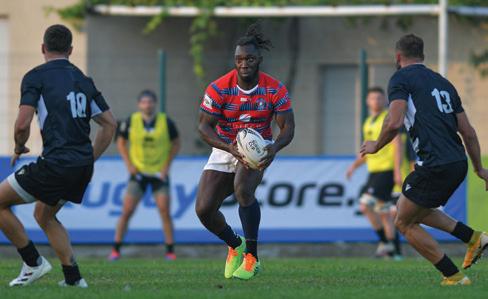


Organizations help strengthen Jewish unity on ASU’s campus


Finding financial aid for camp

Legislation to provide funding for security assistance to small nonprofit organizations, including synagogues and Jewish organizations, at high risk of terrorist attacks and hate crimes due to their mission or beliefs, passed its first big hurdle on Tuesday.
Senate Bill (SB) 1713 passed Arizona’s Senate by a vote of 20-9, representing a supermajority of legislators and bipartisan support, making it a standout in a legislative session otherwise noted for strict party-line voting.

The bill designates that funds will go towards deterrence and target-hardening applications such as installing security cameras, gates and fences that make a facility harder to penetrate, security guards and preparing for active shooter scenarios.
“This could be a game changer for small and medium-sized religious communities,” said Rabbi Bonnie Sharfman, president of the Greater Phoenix Board of Rabbis and spiritual leader of Congregation Kehillah in Cave Creek.


Sharfman is also part of the leadership teams of the Jewish Community Relations Council of Greater Phoenix (JCRC) and
Arizona Faith Network (AFN), organizations that have been working on this legislation since before the COVID-19 pandemic.
In her testimony in front of the Senate on behalf of SB 1713, Sharfman told senators that the government has a responsibility to protect its citizens and their rights, and “one of our most cherished rights is to practice our religion.”
Earlier this month, an FBI report found that anti-Jewish incidents increased nearly 20% in 2021 relative to 2020, a total of more than 10,800 total hate crimes — the highest number in decades. As in previous years, anti-Jewish incidents comprised the majority of the 1,590

hate crimes based on religion.
Sharfman is well aware of the rise of anti-Jewish sentiment and actions and called the cost of providing basic security for synagogues “staggering.”
Even so, most synagogues feel “it’s absolutely necessary to have security guards anytime there are programs, services and religious school activities,” she said.
Though the cost of that security is high, “it would be short-sighted of leadership not to take basic precautions,” she said.
Sharfman’s Congregation Kehillah applied for security funding through the federal nonprofit security grant
SEE SENATE, PAGE 2
 SHANNON LEVITT | STAFF WRITER
SHANNON LEVITT | STAFF WRITER
Following Shabbat in late February, roughly 4,000 Jewish teenagers from across the country and around the globe gathered in Times Square, the heart of New York City, for CTeen’s “Meant2B” event. The annual international Shabbaton and celebration of Jewish pride saw teens jumping, dancing, singing and cheering for the speakers, the musicians and the love of being Jewish.
Elie Wichansky was chosen from hundreds of applicants to lead the crowd during Havdalah. The choice was a bit outside the box considering that Wichansky is 19 and graduated from high school last year, which makes her unusual but not completely unique.
“I was definitely one of the older ones there,” she told Jewish News.
When the Shabbaton’s director called Rabbi Tzvi Rimler, director of CTeen Phoenix, to ask him to submit a video of anyone who would be brave enough to speak in front of so many people, he didn’t hesitate to suggest Wichansky.
“Elie’s not shy and I knew she would be perfect,” Rimler told Jewish News. “This was my sixth year at the Shabbaton and Elie was far beyond the best speaker they’ve had. She was perfect. She was on fire!”
When Wichansky got Rimler’s call, she was in California at a doctor’s appointment. The rabbi told her to make a video — “Bring your energy and show them what you got!” he told her. She made the video in her hotel room and a week later she received a text offering her the gig.
Wichansky is no stranger to doctor’s appointments. At 12, she was diagnosed with chronic and severe ulcerative colitis, a chronic inflammatory bowel disease in which abnormal reactions of the immune system cause inflammation and ulcers on the inner lining of the large intestine.
Over the course of two successive surgeries, doctors removed most of her colon, rectum and appendix. A third surgery “put everything back together” and created a J-pouch with part of her small intestine to replace a temporary colostomy bag.
Ashkenazi Jews are four times more likely to develop the disease than non-Jews living in the same country, according to research from University College London.
Wichansky calls it “an invisible illness,” given that she is often sick even when she doesn’t look it. For the rest of her life, she must be very diligent about her diet, excluding dairy, gluten and sugar, to avoid developing Crohn’s disease.
Her illness was the reason she missed last
year’s Shabbaton. This year, her younger sister, also a CTeen Phoenix member, convinced her to go. She is very close with her two younger sisters and when the youngest is old enough, the three plan to have a joint bat mitzvah in Israel.
Wichansky missed out on a lot more in middle school than her bat mitzvah because of her illness.
“I didn’t get a middle school experience. I was just so embarrassed and kept asking myself, ‘Why me?’” she said. Wichansky struggled to accept her body, which had become “skin and bones.” She had a total of five blood transfusions and was bullied and teased for looking anorexic. It became so challenging for her socially that she turned to homeschooling. But as she felt better, her mother encouraged her to get back to school and get involved in some social activities.
Eventually, she found a group of friends and, maybe more significantly, she found the theater. She started acting and singing on stage and entering talent shows.
“I was such a theater kid. It changed my life and brought me out of my shell. As soon as I got on stage, I took over and felt like I could be myself,” she said. Her facility in front of an audience helped her in New York.
“I was so excited and just kept practicing,” she said. The night went by so quickly that she didn’t have any real time to be nervous before getting on stage with the microphone in her hand. She started talking, energizing the crowd, surrounded by the lights of Times Squares’ famous giant billboards, flashing Hebrew words and Jewish trivia.
“Look around CTeen,” she shouted into the microphone. “We’re standing on one of the brightest spots in the world. But it’s not the lights of Times Square that are blinding me — it’s the lights of all of you!”
She explained the tradition of lighting the Havdalah candle and what it means to be together during a Hakhel year, when Jews would gather in Jerusalem’s Temple before its destruction to listen to the king read from the Torah every seven years.
“On our own, we’re a flame on the
wind but together, we’re a mighty fire,” she told the crowd before reminding them why they traveled to New York. “You came to connect to Torah, to Hashem, to each other. We’re like this candle — united we have the power to light up the world!”
Rimler, who had brought 27 kids from Phoenix, was proud to watch her.
“She was full of energy and really got the crowd going,” he said.
Five teens from CTeen Gilbert and five from CTeen North Phoenix also were at the Shabbaton, Feb. 23-26. Every year the teens see the famous secular tourist sites of New York and visit Jewish heritage and religious sites as well, Rimler said.
“They get to see what our mission is here in Phoenix. We’re not just going through the motions. We’re part of an amazing community that comes from all over the world,” he said.
He enjoys the entire trip, but his favorite moment is always visiting 770 Eastern Parkway in the Crown Heights section of Brooklyn, the world headquarters of the Chabad-Lubavitch Hasidic movement.
Many CTeen members don’t come from a religious background, making the time spent in the synagogue there extra special, he said. The teens crowd in together, sing songs, learn about Jewish texts and pray the evening service.
“Thousands of teens stand together arm in arm, singing timeless songs. To experience Shabbat like that is incredible,” he said.
Wichansky was equally sanguine about her Jewish experience at the Shabbaton. She’s generally apprehensive about letting people know she’s Jewish because “the world is scary and so many people are antisemitic,” she said.
But during that weekend, she rejoiced in her Jewish identity. After her appearance on stage, people took pictures of her walking through the crowd.
“I felt like a celebrity! I’ve never been surrounded by so many Jews in my life. It was incredible,” she said. JN
For more information, visit cteenphoenix.com.



Nearly 700 members of the Jewish Funders Network (JFN) met in Phoenix for three days last week to talk about pressing global issues, learn best practices and discuss how they can improve the philanthropic work they are already doing.

JFN describes itself as “a global community of private foundations and philanthropists whose mission is to promote meaningful giving and to improve philanthropy in the Jewish world.”
When Marcia Riklis, JFN board chair, took the stage, she spoke of the conference as a place to move that mission forward by facilitating “connections and collaborations.” She described it as a place for experienced funders with a wealth of philanthropic practice to impart their know-how to those new to the game, as well as a place for veterans to learn innovative ideas from the novices.
Zoya Rains, conference co-chair, went further, calling these three days an opportunity for inspiration — when people, whose passion and values align, find each other.
“Ultimately, we are all here for the shared purpose of creating a stronger Jewish world through strategic and impactful philanthropy, and JFN is evidence that we can achieve more together than on our own,” she said.
Among the 690 members who gathered at the Arizona Biltmore March 19-21, were Gayla Brockman, Judy L. Smith and Blair Harvey, representatives of Chicago’s Michael Reese Health Trust, a public foundation focused on housing and homelessness; community and domestic violence; developing a healthy health care workforce; and honoring its Jewish legacy.
This was the trio’s first JFN conference, though Brockman and Smith are longtime philanthropy professionals. It was an opportunity to “go deep” in exploring the Jewish legacy portion of the foundation’s portfolio.
“I finally have time to focus primarily on the Jewish community,” Brockman, Michael Reese’s president and CEO, told Jewish News.
The past seven years of her tenure as CEO have been consumed by taking the foundation public, building new systems and changing the overall culture. Coming to the conference and convening with Jewish community funders will “help generate ideas and vision,” she said.
The three took a divide-and-conquer approach for most of the conference, which was split between many sessions and workshops, with various breakout options. Topics ran the gamut from examining the relationship between Israel and the Jewish Diaspora; discussing the challenges of
climate change, poverty and antisemitism; and the weaponization of humanitarian aid in global hotspots like Syria and Ukraine.
One of the most meaningful sessions Smith, a Michael Reese board member, attended was a conversation about the importance of African American and Jewish communities working together.
“It’s all about power sharing and I learned a lot,” she said of the session that directly affects her work because of the foundation’s many partnerships with Chicago’s Black community.
While Smith was new to the conference, she has a deep knowledge of philanthropy in her Jewish community. In fact, she already knew several other attendees thanks to her volunteer work. Even some people she hadn’t met, she realized she had a connection with them.
Early in the conference, people were asked to talk to someone new. Smith approached a woman who told her she was originally from Toronto. Smith asked the woman whether she knew of a certain Jewish couple in the city. Not only did the woman know the couple, it turned out they were her parents. Smith quickly realized she had met this woman many times — even had Shabbat at her house — albeit when the woman was still in diapers.
“I mean, talk about chills. I texted my husband and she called her mom. It’s a very small Jewish world,” she said.
Harvey, on the other hand, is relatively new to her role as chief program officer and to philanthropy itself, especially Jewish philanthropy, not being Jewish herself.
She was startled to see the amount of security at the conference; Smith explained it’s par for the course at any large Jewish gathering.
“Welcome to the world of Jewish fundraising,” Smith told her.
“I’m learning more about the Jewish funders’ landscape and the culture of what it means to be a Jewish funder, the values and the diversity of the landscape, which is fascinating,” Harvey said.
During that morning’s breakfast discussion, Harvey spoke with several people focused on health care, her area of expertise.
“It was helpful to speak with people about infrastructure development and how we build health equity within different communities,” she said.
She noted a lack of policy discussion throughout the conference, which she would have found helpful. Smith, too, was nervous to find some of the talks “somewhat elementary.” Thanks to Brockman, “who constantly pushes us and brings the newest ideas to us,” the team has a high level of sophistication regarding many of the topics covered during the conference, according to Smith. “I had heard a lot of the information presented
on the first day before.”
However, an “amazing” and “sophisticated” session on impact investing put her at ease. Brockman agreed, saying, “it gave us great ideas about what’s going on and how to think about our work.”
Other sessions gave Smith ideas about governance issues and “sticky issues like transferring power between a board and a grantee and how to equalize that power,” she said.
“From a board member perspective, I’m learning more about new approaches that I can use when talking to my fellow board members about moving our work the right way,” she said.
Even with three people on their team, they couldn’t gauge the measure of the entire conference. There was too much going on at once.
Riklis noted the growth of this year’s conference, the largest on record. Since the beginning of the COVID-19 pandemic, JFN’s membership has grown by 39% overall and some of the funders’ interests and priorities have shifted.
Panelists for “Climate Change: How Can Jewish Philanthropy Matter?” were thrilled by the number of people in the session. A few years ago, maybe 10 people would come to such a discussion and now the room was full.
After the presentations, the room was divided into two groups to talk about ways of working together on certain environmental issues.
They discussed how the issue touches so many of their other priorities such as homelessness, poverty and refugees. There is no protection for people fleeing climate change, said Mark Hetfield, president and CEO of HIAS, a Jewish nonprofit providing humanitarian aid and assistance to refugees since 1881. “Everyone fears climate migration but nobody is preparing for it,” he said.
Sunday morning before the conference officially began, Rabbi Dr. Shmuly Yanklowitz, president and dean of Valley Beit Midrash, arranged a bus for attendees to talk to refugees staying at Monte Vista
Baptist Church in Phoenix and a homeless encampment in The Zone, which spans roughly from Jefferson to Jackson streets and ninth to 15th avenues in downtown Phoenix.
“People were engaged with many questions as we discussed how the perils of climate change are affecting those suffering from homelessness and how new natural disasters are causing a global increase in refugees,” Yanklowitz said.
Brockman was one of 55 participants who accompanied Yanklowitz. While others were a bit nervous about talking to people in The Zone, she didn’t hesitate. “It’s because she’s so close to this work,” Smith said.
Brockman also appreciated the chance to get to know her colleagues more informally. It was enlightening to see that so many of the people doing “powerful and important work” at the helm of influential foundations are very kind and unassuming people, she said. “People here want to make the world a better place.”
When Darren Walker, president of the Ford Foundation, Paula Pretlow, trustee of The Harry and Jeanette Weinberg Foundation and Eric Goldstein, CEO of UJA-Federation of New York, discussed the role philanthropy can play in addressing the world’s challenges during the second plenary, Brockman found herself excited and wanting to yell out: “It’s about developing wealth!”
Listening to three influential funders talk about the same things she’s been pushing for in her foundation, like trustbased philanthropy and funding general operating budgets, she was “revved up.”
Just the mention of it sent Brockman, Smith and Harvey into a detailed discussion of these ideas and how instrumental they could be in making progress among the Chicago communities they work with. Getting into the weeds of Jewish philanthropy is exactly why they came, and though the conference didn’t hit every note they hoped it would, they have a helpful list of suggestions for next year’s meeting. JN
ISABELLA SCHNEIDER | SPECIAL TO THE JEWISH NEWS






From 2020 to 2021, antisemitic incidents reported to the AntiDefamation League (ADL) rose by 5% nationally. In Arizona, there was a 65% increase in reported incidents during those years. The highest concentration of incidents reported occurred in the Phoenix metropolitan area and in Tucson, where both of the state’s largest universities are located.
Jewish students make up just 5.6% of Arizona State University’s undergraduate student body according to a Hillel International database. Even though the percentage of Jewish students at ASU falls below 10%, there are numerous Jewish organizations on campus to provide support.

Organizations which engage the most Jewish students include Hillel Jewish Student Center at ASU, Rohr Chabad at ASU and Olami Arizona, however there are other options for students to choose

from. There are the historically Jewish Greek life groups, Alpha Epsilon Phi and Alpha Epsilon Pi, as well as fellowship opportunities from StandWithUs and the Israel on Campus Coalition.
The strong support networks for Jewish students have helped students feel less alone and isolated when antisemitic incidents manifest on campus. For example, in November 2021 when
several antisemitic flyers were found on ASU’s campus, Hillel acted immediately to release a statement offering support to students.
SEE UNITY, PAGE 6

“We respond quickly to attempt to identify the source of the antisemitism and support those affected,” said Taylor Silverman, assistant executive director of Hillel at ASU. “Our students’ safety and wellbeing is our top priority and we make sure to respond accordingly. As staff, we make ourselves readily available and responsive to any student when there is an antisemitic concern or a known incident on campus.”
Madeleine Steppel, student president of Olami Arizona at ASU, said that Olami was quick to act in notifying critical bodies such as the dean of students and the Council of Religious Advisors (CORA) when an antisemitic incident occurred.

“Olami has been such a help to me at ASU. In my three years here, no one has been more supportive each time there is an antisemitic incident on campus,” said Steppel, “I have come to depend on the help of our rabbis and rebbetzins. I know that Olami ASU is always here for me and other Jewish students because they take action.”
Chabad at ASU engages students across all four campuses and from the surrounding communities for high holidays, Shabbat dinner and weekly signature food-themed events. They



also host classes, Shabbat trips and trips around the world to help students further connect with each other and their Jewish heritage.
“Chabad at ASU provides physical, emotional and spiritual support to Jews that need it, for whatever reason it may be,” said Avin Kreisler, student president of Chabad at ASU. “When antisemitism shows its ugly face at our school, Chabad ASU responds by working with ASU and Tempe police to ensure that there is no physical threat, to make sure every student feels safe and supported and to work with ASU administration to address any issues or concerns. By being a part of Chabad, I have learned the best way to deal with darkness is to add more light — by increasing our Jewish pride and being more Jewishly active.”
The ability to react quickly comes in part from a group made up of Jewish student leaders who are members of the aforementioned organizations. This group of leaders known as the Israel Board, or I-Board for short, convenes once a month via Zoom to connect on various upcoming events their respective organizations are hosting, scholarship and fellowship opportunities and areas where they feel a lack of community support. Although a separate entity, the Israel Board hosts its meetings at Hillel and receives oversight from Hillel’s executive
and assistant executive director.

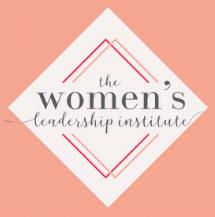
“Our Israel advocacy work has been growing significantly since COVID-19. Last year, our organization SunPAC lobbied to get the IHRA definition of antisemitism recognized by Arizona law,” said Matthew Friedman, co-founder of the I-Board. SunPAC is a bipartisan group of student activists working to strengthen, protect and promote the U.S.-Israel relationship.
“We have been working with student government to increase antisemitism awareness and to prevent issues like BDS (Boycott, Divestment, Sanctions) from arising again,” he said. “While antisemitism cases are on the rise nationwide, our peer-to-peer support is growing to combat it at ASU.”
While measures are being taken to mitigate the threat of antisemitism on college campuses, it remains an anxietyinducing topic for Jewish students. During the COVID-19 pandemic many students took to spending more time online. Liza Gofman, co-founder of the I-Board and Israel on Campus Coalition (ICC) member said she noticed an increase in antisemitic and anti-Israel propaganda posts during this time.
“I saw firsthand how misinformation was spreading in the form of ‘credible looking’ infographics,” Gofman said. “In 2021 and 2022, it manifested from the internet onto our campus and others around the country as well. Since coming back to campus in 2020/2021, we have seen antisemitic incidences such as flyers with swastikas, antisemitic speakers and events, and so much more. I have personally experienced antisemitic attacks such as people coming up to me and saying antisemitic things — both in person and on social media.”
Despite the increase in antisemitic incidents on campus, Gofman said her sense of Jewish pride has never wavered. In fact, the work she has done with her peers in the form of the I-Board and as an ICC member have allowed her the space to help students who may not feel as courageous to be openly Jewish on campus.
“Everything has made me want to work even harder to support the Jewish and pro-Israel community on campus.” Gofman said. “Through creating and leading the I-board, which in its first year has already seen great success, as well as continuing my fellowship with the Israel on Campus Coalition I’ve had countless tools and inspirations to continue creating initiatives to improve the campus climate and strengthen our community.”
One tool brought to student leaders are conferences with sessions for brainstorming ways to strengthen Jewish student unity and combat antisemitism. For example, both StandWithUs and ICC host leadership summits in August where fellows meet their peers from around the U.S.

StandWithUs hosts a conference in March for students from around the world to convene and expand upon teachings from the preliminary August training. The student fellows can network with other attendees to gain inspiration for initiatives and action plans they can implement in their own communities. They also attend plenaries and hear from renowned international speakers.
“It was at the ICC NLS conference in August that I got the idea for the I-Board and my director was very helpful finding a way to make my idea come to life,” Gofman said. “Additionally, every time we have some sort of antisemitism on campus, ICC has given me digital toolkits and preparation for how to navigate the issue.”
Training at conferences and guidance from local organization are part of what is giving students the confidence to act on these initiatives. The Jewish community at ASU will continue to combat antisemitism even as issues arise on campus, in the surrounding community and around the world. JN

Acold and damp morning greeted 320 attendees for the “Lighting the Spark Campaign Breakfast” at The Clayton House in Scottsdale on March 21.


The Center for Jewish Philanthropy of Greater Phoenix’s (CJP) sold-out event highlighted its programs and honored people in the community with the Belle Latchman Community Service Award, the Lee Amada and Sy Clark Young Leadership Awards and the first CJP Spark Award. After the honorees were identified, a video was shown with clips of the award winners, CJP employees and community members highlighting what the Center does.
The event concluded with a Q&A with Rachel Hoffer, CJP’s board chair, and Julie Platt, board chair for the Jewish Federations of North America (JFNA), who shared the importance of collective
giving and its impact on the work JFNA is doing in the areas of security, global outreach and creating flourishing Jewish communities.

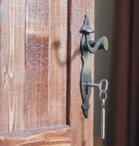
The CJP just completed its first full year of operation as a new organization created by the integration of the Jewish Community Foundation of Greater Phoenix and the Jewish Federation of Greater Phoenix.

“These firsts demonstrate a new approach, a new way of thinking about inclusivity, supporting community needs, being dedicated to service and applying a holistic view to philanthropy,” Hoffer said.
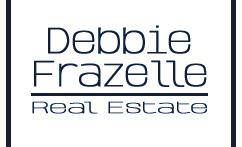
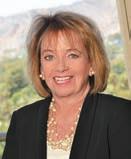
Rabbi Aviva Funke, associate director of the Bureau of Jewish Education of Greater Phoenix and principal of Hebrew High, led the Hamotzi and gave the
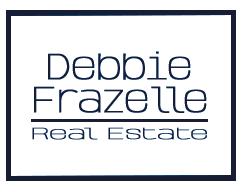





invocation.
“This morning I see a tree of an organization, rooted in this community, sprouting gorgeous blossoms,” she said. “It is my privilege to make this blessing upon the fruits that will come and the blossoms that are and the holy work we have the righteous responsibility to do.”
“The CJP exists in part to create real change and growth in our community and fuel innovation and to ensure that Greater Phoenix is a place where Jewish people can lead meaningful Jewish lives — however they define that for themselves,” said Richard Kasper, CJP’s CEO. “We also celebrate collective achievements by recognizing individuals and organizations who, through their time, action and dedication, are committed to making our community an exceptional place to live.”
Kasper then presented the Belle Latchman Community Service Award to two local organizations, Valley Beit Midrash’s (VBM) social justice program Arizona Jews for Justice (AJJ) and the East Valley Jewish Community Center’s (EVJCC) JBox program.
“Each of these programs addresses growing local humanitarian needs on behalf of our Jewish community,” said Kasper.
AJJ is one of the fastest-growing
Jewish social service organizations in the Southwest. Its initiatives include work to protect the unhoused, support refugees and assist asylum seekers. In 2022, AJJ provided 200 meals per week to individuals and families in need, provided food and water to the unhoused during the summer heat and distributed thousands of dollars’ worth of toys to vulnerable children.
“I don’t know what the question at the gates of heaven will be, but if I were to guess what the most powerful question for me would be, it is, ‘Did you give more than you took from the world?’” said Rabbi Dr. Shmuly Yanklowitz, president and dean of VBM. “We want AJJ to be a vehicle for us to make clear to ourselves, and the society at large, that our Jewish community is here to serve, partner and give back.”
JBox is a community service program of the EVJCC. Last year, JBox provided more than 5,000 meals to low-income youth and seniors in their own homes. JBox also provides free lunches to lowincome children attending EVJCC preschool. In response to increased demand during the pandemic, the EVJCC established the JBox Food Pantry to provide free groceries to 300 families.
“We never thought that we would win an award,” said Rabbi Michael Beyo, EVJCC’s CEO. “We are very humbled,
there is so much more to do and there are so many more people that need services; we are very thankful that we can be there for them.”

Leah Bold Mondlick received the Lee Amada Young Leadership Award and Bryce Schotz received the Sy Clark Young Leadership Award.
“Both Bryce and Leah embody a new generation of young leaders who are stepping up and assuming positions of leadership in established organizations or want to reach their peers in novel ways,” said Hoffer.
Mondlick chaired two young leadership missions to Israel, is a JFNA National Young Leadership Cabinet alumnus and is the past chair of NowGen in Phoenix, where she served as the chair for two years and launched the Live, Give, Lead program, which is still in place today. She is a prior Jewish Federation of Greater Phoenix board member and serves on CJP’s board. She is also the current chair of CJP’s Women IN Philanthropy, which she relaunched in 2020, bringing new programming including Dignity Grows, Floranthropy and the first WIP Women Cares Day.
Her husband, Dr. Joshua Mondlick, said, “There’s never really a ‘no’ that comes out of her mouth, which is impressive. Sometimes I wish she would be able to say ‘no.’ She does everything really well and it’s incredible to watch her.”
Mondlick said that she looks back at the previous winners of the award as icons in the community and also considers her mother an icon, stating that they perform community service work together.
“Both (of my) parents do community service every week and they’re very involved with their shul,” she said. “It’s a great honor, I’m very happy to accept it and thank everyone who put me in this place to receive it. We have to take care of one another. If not us, then who?”
Schotz, a second-generation Arizona native, was involved in BBYO as a teen, then transitioned to Jewish involvement at Arizona State University. He held leadership positions in his Jewish fraternity, Sigma Alpha Mu, was president of Chabad at ASU and an active member of Hillel and pro-Israel groups on campus. He attended Birthright in the summer of 2009, where he met his wife, Shawna. Upon graduation from the WP Carey School of Business, he helped launch Moishe House Phoenix and the NowGen Giving Circle while being a BBYO advisor for Jonas Salk AZA for five years.
“I’m very proud of him, obviously, and I’m not surprised because he puts in the work and he’s really passionate,” said Shawna Schotz.
“Honestly, it’s a great honor. Being involved in the community, giving back, feels so natural for me,” said Bryce Schotz.
“We may be the younger generation but we have to start building now what we want the Jewish community to be in five, 10, 20 or 30 years.”
Kasper then introduced Carmen and Michael Blank, the honorees of the first CJP Spark Award that “celebrates and recognizes extraordinary individuals who give, advocate and volunteer for positive change in our community.”
Since the 2015 establishment of The Molly Blank Fund, in memory of Michael and Arthur Blank’s mother, Carmen and Michael Blank have directed $18 million to support Jewish and non-Jewish organizations in the Greater Phoenix area and Northern Arizona.

“The Blanks’ philanthropy has been invaluable to the CJP, helping us provide countless summer camp scholarships, senior rides, PJ Library books and so much more,” said Kasper. “Without Mike and Carmen Blank’s leadership and support, JewishPhoenix.com would still be just another good idea on the community’s collective wish list.”
“I witnessed my mother’s involvement in her local community with seniors and a lot of her activities. I got involved when I joined the board of my brother’s foundation (The Arthur M. Blank Family Foundation) and we started The Molly (Blank) Fund, which is active in things like arts and culture, at-risk youth and various other Jewish causes,” said Blank. “Personally, I’m more involved with the at-risk children and Carmen is a big hero for the arts and culture. The Molly (Blank) Fund is doing what I anticipated it would do,”
“But you can do more,” Carmen Blank said, which elicited laughter from the audience.

“But you can do more,” said Michael Blank. “Which is what we’re instilling in the grandchildren — the same sense of doing and getting involved. You have to show by example.” JN
For more information, visit phoenixcjp.org. Jewish News is published by the Jewish Community Foundation of Greater Phoenix, a component of the Center for Jewish Philanthropy of Greater Phoenix.
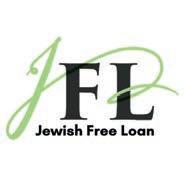
“The CJP exists in part to create real change and growth in our community and fuel innovation and to ensure that Greater Phoenix is a place where Jewish people can lead meaningful Jewish lives — however they define that for themselves.”
Richard Kasper


On Tuesday, Jan. 18, while adults gathered in the Ina Levine Jewish Community Campus’ social hall to talk about possible ways to unite the Jewish community, across the hall, Jewish teenagers came together as one.
The adults hosted a panel; the teens played a game.
That night was the second half of the Bureau of Jewish Education of Greater Phoenix’s Hebrew High’s miniseries focused on Rabbi Hillel’s famous questions from the Mishna, “If I am not for myself, who will be for me? But if I am only for myself, what am I? If not now, when?”



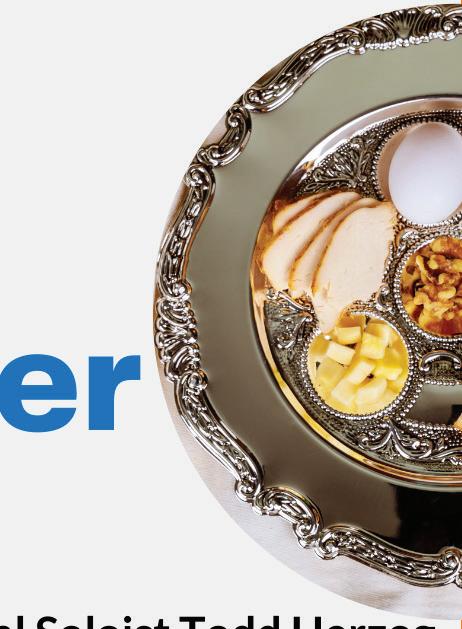
The focus of the first night was individuals and the second night was about community and what it means to be for other people, explained Rabbi Aviva Funke, Hebrew High principal.
To do that, students and teachers played FreshBiz, a game that resembles Monopoly but only on the surface. Unlike that classic board game that pits all players against one another, the key to Fresh Biz is to get everyone to cross the finish line together.

Four people sit at a table in front of a board game and use action cards. Just like in Monopoly, players buy businesses, purchase stock and generate income. That’s where the similarity stops.
To win, players have to work together.
At first, “everyone brings the Monopoly mindset and wants to destroy the others and take their money,” explained Funke. Soon players realize that sabotaging others weakens them.
“Only by working together and strategizing as a team can you really win,” she said.
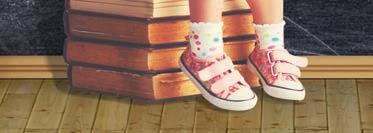
Yosef Funke, the rabbi’s husband, discovered the game while the couple lived in Israel. He described playing the game as a “paradigm-shifting experience.” The creators asked him to distribute it in the United States, where he uses it as a training modality in his work as a collaboration coach for businesses and nonprofit organizations.
People come to the game with a “lastman-standing mentality” and experience instead a direct model of collaboration. This is game-based learning that requires
hundreds of micro decisions: to speak up or to withhold, to share and ask questions, to make connections or play against others, he explained.
The Hebrew High students were one of his toughest crowds yet because teenagers spend much of their time in “a competitive and fear-based environment,” he said.

“They’re surrounded by the feeling ‘If I don’t get good grades, I don’t get into college, then I don’t get a good job,’”




he said.
Therefore, it took students who wanted to one-up each other longer to consider helping their fellow players instead. But once they recognized the benefits of the latter strategy, they picked it up fast.
“It was an ‘aha!’ moment for them and became more fun,” Funke said. He’s now passionate about introducing the game to younger audiences.

Cayla Laiserin, a junior at Pinnacle High School in Phoenix, enjoyed the game after stumbling through its initial learning curve. In part, that came from needing to learn what stocks are and how to make a business investment.
After learning the basics, she tried competing with the other players, but “slowly you realize maybe it would be better if we all worked together,” she
said. That was a new experience, but when her table picked up on it, they stopped listening to the game’s instructions and worked together, even using the money to help each other.
“Once you get it, you get it, and by the end, we were doing anything and everything to make sure everyone in our group won,” she said.
She tried explaining the game to her
friends at school, but they were confused, she said.
“They looked at me like, ‘What’s she talking about?’ We had so much fun playing it that night and at the end, everyone was super excited and we all high-fived each other,” she said.
Hebrew High teacher Jeremiah Kaplan came to the game with an advantage given that he facilitates collaboration-style games as a research and training specialist for Arizona State University’s School of Social Work. His table was full of teachers, who all began playing to win but soon discovered that “to pull through in a short amount of time” they should work together.
While they played, he and the other teachers enjoyed listening to the kids around them start working together and thanking each other when someone helped out.
“At first,they were playing for themselves, but by the end, they were all trying to get everybody across the finish line. As the night went on, you heard a lot more of ‘we’ve almost got it!’ and the language changed from ‘I’ to ‘we,’” he said.
Rabbi Funke loved watching the students collaborate by bringing their various talents to the table and sharing their resources.

“If you hoard your pieces, the game
stops,” she said. “When you share these things, the world becomes way more alive.”
Teens, who are very self-conscious, struggle with what other people might think of them, which keeps them focused on themselves, she said.
“We need to encourage the younger generation to work better together and bring their gifts to the table. The game shows that this is a metaphor for life. Are you showing up fully? Are you supporting those around you? If you don’t have the courage to share gifts, then you continue to hoard,” she said.
After the first night of the miniseries, she knew these messages, combined with the lessons of the game, were getting through to the teenagers, who told her they felt more aware of other people and could see value in supporting one another.
“Jewish teens need each other now more than ever,” she said.
“Can we be one community?” was the question being asked across the hallway that January evening.
Funke’s answer was unequivocal: “Our teens can. I know that they can. They celebrate one another’s diversity while lifting up their uniqueness.” JN
For more information, visit bjephoenix.org/ hh-overview.
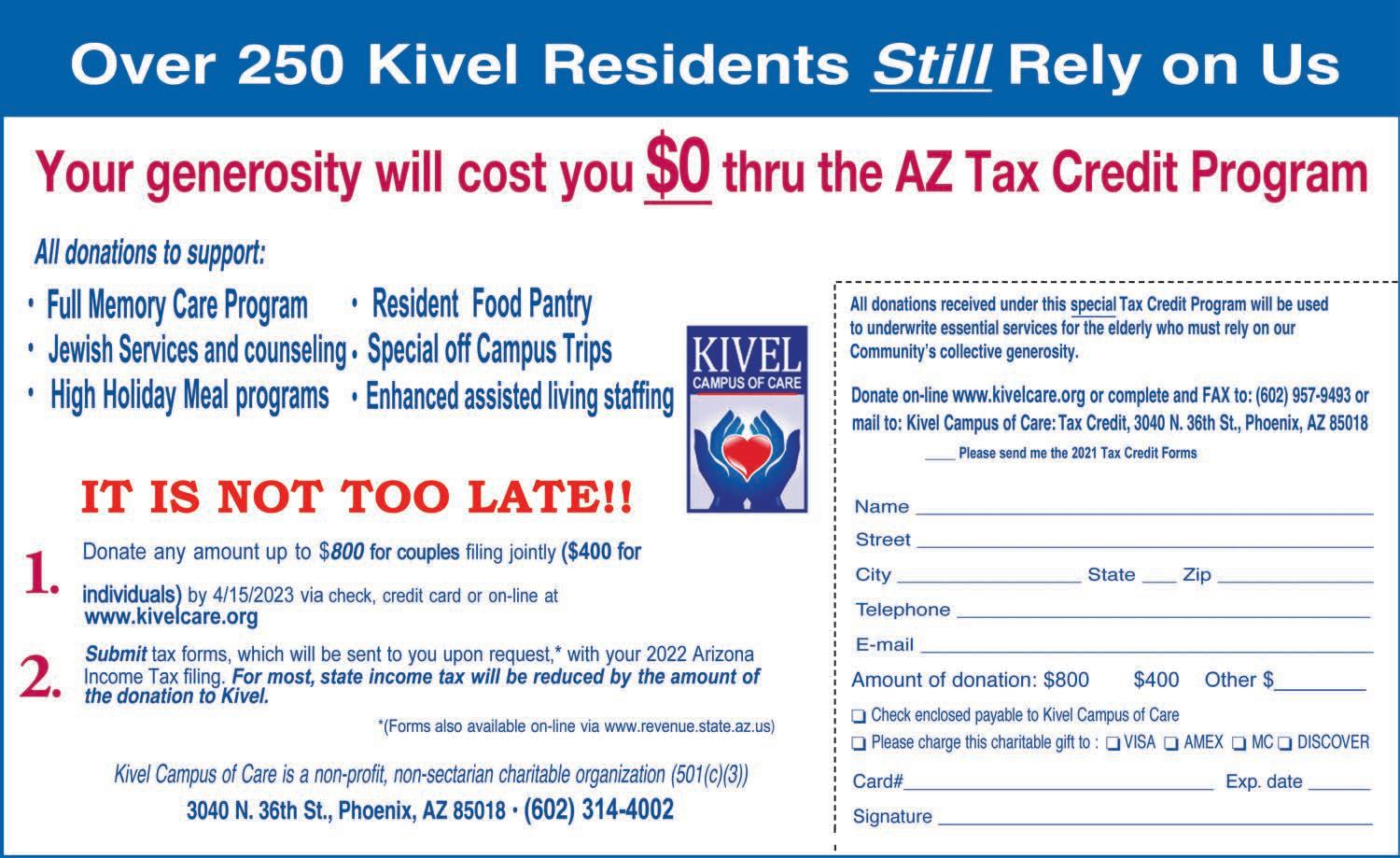
 ANDREW SILOW-CARROLL | JTA
ANDREW SILOW-CARROLL | JTA
Earlier this month the New York Times convened what it called a “focus group of Jewish Americans.” I was struck briefly by that phrase — Jewish Americans — in part because the Times, like the Jewish Telegraphic Agency, tends to prefer “American Jews.”
It’s seemingly a distinction without a difference, although I know others might disagree. There is an argument that “American Jew” smacks of disloyalty, describing a Jew who happens to be American. “Jewish American,” according to this thinking, flips the script: an American who happens to be Jewish.
If pressed, I’d say I prefer “American Jew.” The noun “Jew” sounds, to my ear anyway, more direct and more assertive than the tentative adjective “Jewish.” It’s also consistent with the way JTA essentializes “Jew” in its coverage, as in British Jew, French Jew, LGBT Jew or Jew of color.
I wouldn’t have given further thought to the subject if not for a webinar last week given by Arnold Eisen, the chancellor emeritus at the Jewish Theological Seminary. In “Jewish-American, American-Jew: The Complexities and Joys of Living a Hyphenated Identity,” Eisen discussed how a debate over language is really about how Jews navigate between competing identities.
“What does the ‘American’ signify to us?” he asked. “What does the ‘Jewish’ signify and what is the nature of the relationship between the two? Is it a synthesis? Is it a tension, or a contradiction, or is it a blurring of the boundaries such that you can’t tell where one ends and the other begins?”
Questions like these, it turns out, have been asked since Jews and other immigrants first began flooding Ellis Island. Teddy Roosevelt complained in 1915 that “there is no room in this country for hyphenated Americans.”
Woodrow Wilson liked to say that “any man who carries a hyphen about with him carries a dagger that he is ready to plunge into the vitals of the Republic.” The two presidents were frankly freaked out about what we now call multiculturalism, convinced that America couldn’t survive a wave of immigrants with dual loyalties. The two presidents lost the argument, and for much of the 20th century “hyphenated American” was shorthand
for successful acculturation. While immigration hardliners continue to question the loyalty of minorities who claim more than one identity, and Donald Trump played with the politics of loyalty in remarks about Mexicans, Muslims and Jews, ethnic pride is as American as, well, St. Patrick’s Day. “I am the proud daughter of Indian immigrants,” former South Carolina Gov. Nikki Haley said in announcing her run for the Republican presidential nomination this month.
For Jews, however, the hyphen became what philosophy professor Berel Lang called “a weighty symbol of the divided life of Diaspora Jewry.” Jewishness isn’t a distant country with quaint customs, but a religion and a portable identity that lives uneasily alongside your nationality. In a 2005 essay, Lang argued that on either side of the hyphen were “vying traditions or allegiances,” with the Jew constantly confronted with a choice between the American side, or assimilation, and the Jewish side, or remaining distinct.
Eisen calls this the “question of Jewish difference.” Eisen grew up in an observant Jewish family in Philadelphia, and understood from an early age that his family was different from their Vietnamese-, Italian-, Ukrainian- and African-American neighbors. On the other hand, they were all the same — that is, American — because they were all hyphenated. “Being parallel to all these other differences, gave me my place in the city and in the country,” he said.
In college he studied the Jewish heavy hitters who were less sanguine about the integration of American and Jewish
identities. Eisen calls Rabbi Mordecai Kaplan, the renegade theologian at JTS, “the thinker who really made this question uppermost for American Jews.” Kaplan wrote in 1934 that Jewishness could only survive as a “subordinate civilization” in the United States, and that the “Jew in America will be first and foremost an American, and only secondarily a Jew.”
Kaplan’s prescription was a maximum effort on the part of Jews to “save the otherness of Jewish life” – not just through synagogue, but through a Jewish “civilization” expressed in social relationships, leisure activities and a traditional moral and ethical code.
Of course, Kaplan also understood that there was another way to protect Jewish distinctiveness: move to Israel.
The political scientist Charles Liebman, in “The Ambivalent American Jew” (1973), argued that Jews in the United States were torn between surviving as a distinct ethnic group and integrating into the larger society.
According to Eisen, Liebman believed that “Jews who make ‘Jewish’ the adjective and ‘American’ the noun tend to fall on the integration side of the hyphen. And Jews who make ‘Jew’ the noun and ‘American’ the adjective tend to fall on the survival side of the hyphen.”
Eisen, a professor of Jewish thought at JTS, noted that the challenge of the hyphen was felt by rabbis on opposite ends of the theological spectrum. He cited Eugene Borowitz, the influential Reform rabbi, who suggested in 1973 that Jews in the United States “are
actually more Jewish on the inside than they pretend to be on the outside. In other words, we’re so worried about what Liebman called integration into America that we hide our distinctiveness.” Rabbi Joseph Soloveitchik, the leading Modern Orthodox thinker of his generation, despaired that the United States presented its Jews with an unresolvable conflict between the person of faith and the person of secular culture.
When I read the texts Eisen shared, I see 20th-century Jewish men who doubted Jews could be fully at home in America and at home with themselves as Jews (let alone as Jews who weren’t straight or white — which would demand a few more hyphens). They couldn’t imagine a rich Jewishness that didn’t exist as a counterculture, the way Cynthia Ozick wondered what it would be like to “think as a Jew” in a non-Jewish language like English.
They couldn’t picture the hyphen as a plus sign, which pulled the words “Jewish” and “American” together.
Recent trends support the skeptics. Look at Judaism’s Conservative movement, whose rabbis are trained at JTS, and which has long tried to reconcile Jewish literacy and observance with the American mainstream. It’s shrinking, losing market share and followers both to Reform — where followers tend to fall on the “integration side” of the hyphen — and to Orthodoxy, where Jewish otherness is booming in places like Brooklyn and Lakewood, New Jersey. And the Jewish “nones” — those opting out of religion, synagogue and active engagement in Jewish institutions and affairs — are among the fastest-growing segments of American Jewish life.
Eisen appears more optimistic about a hyphenated Jewish identity, although he insists that it takes work to cultivate the Jewish side. “I don’t think there’s anything at stake necessarily on which side of the hyphen you put the Jewish on,” he said. “But if you don’t go out of your way to put added weight on the Jewish in the natural course of events, as Kaplan said correctly 100 years ago, the American will win.” JN
The views and opinions expressed in this article are those of the author and do not necessarily reflect the views of JTA or its parent company, 70 Faces Media.
We are a diverse community. The views expressed in these opinion pieces do not necessarily reflect the views of the officers and boards of the Jewish Community Foundation, Center for Jewish Philanthropy, Jewish Federation of Greater Phoenix, Cleveland Jewish Publication Company or the staff of the Jewish News. Letters must respond to content published by the Jewish News and should be a maximum of 200 words. They may be edited for space and clarity. Unsigned letters will not be published. Letters and op-ed submissions should be sent to editor@jewishaz.com
One of the more unique days on the Jewish calendar is this coming Shabbat, which is named Shabbat Hagadol — the Great Shabbat.
The reason for this is that when the Jewish people were in Egypt, G-d told them to take a sheep on the 10th of the month of Nissan and have it ready to bring as a sacrifice on the 14th of Nissan. That night would be the 10th plague — the smiting of the firstborn and the following morning, the Exodus from Egypt. When the Egyptian firstborns heard about the impending plague, as you can imagine, they became very frightened and headed straight to Pharaoh, demanding that he let the Jewish people go before all the firstborns were killed. Pharaoh refused, which led to civil unrest between
the Egyptian firstborns, who feared for their lives, and the rest of Egypt who were on Pharaoh’s side. Desiring to keep their pride intact and not wishing to let their Jewish slaves go, they refused to heed Moses’ warnings.
More than just some inside politics among the Egyptians, this was, in fact, a great miracle for the Jewish people, for their long-time oppressors were busy fighting between themselves without using the Jewish people as a scapegoat. Even more so, they were too preoccupied with their battles to notice the Jews readying sheep to be sacrificed and eaten in preparation for their imminent redemption, despite the fact that the Egyptians considered sheep as sacred gods.
The famous passage in the Passover Haggadah, starting with the words “Vehi She’amda La’avoteinu,” declares our firm belief and trust in G-d that just as He saved us from Pharaoh and the Egyptians so long ago, so too, He continues to save us now, and always, from our enemies and oppressors that rise up against us. Throughout our history, as we know too well, our
enemies tried to destroy us whenever they possibly could but that didn’t stop us from remaining true to our faith and to our mission of being lamplighters in whichever location G-d had placed us. Whether besieged by the Romans, pursued by the Crusaders or starved in the concentration camps during the Holocaust, there are countless stories about the dedication of our people to their Creator.
But just imagine, if that is how we were able to live when times were hard, what we are capable of today when we are thankfully able to practice Judaism freely and openly. Just like on that fateful Shabbat day in Egypt, when it was all taken care of for us, now, too, G-d can take care of our enemies — and anything else — without us mixing in. Which leaves us open and available to dedicate ourselves to Him; by fulfilling our purpose of spreading G-dliness, goodness and positivity in the world.
The Passover Haggadah speaks of four children who find themselves at the seder table: the wise, the wicked, etc. But the Lubavitcher Rebbe taught that today there
is also a fifth child, one who is not even at the seder table because they don’t know it’s Passover.
However, as Shabbat Hagadol — the Great Shabbat — teaches us, G-d takes care of our physical needs so that we can, and therefore should, busy ourselves with ensuring that the joy and spirit of Passover reach even that ‘fifth’ child, giving all of our brothers and sisters a chance to experience the “holiday of Redemption!”
If you, or someone you know, do not have a seder to attend, please contact me at chabadofscottsdale.org and we will help you find a seder.
Wishing you a happy and joyous Passover and true redemption. JN
RABBI ISAIAH ROTHSTEIN | JTA
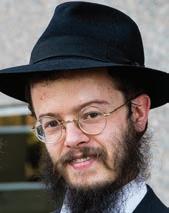
Rereading Exodus in synagogue reminds me of when I first learned about Moses’ role in freeing the Children of Israel who had been enslaved to Pharaoh. I grew up in Monsey, New York. My mother was Black and my father was white; my family identified with the Chabad-Lubavitch movement. I discovered the Passover story through ultraOrthodox coloring books that depicted the liberation of the ancient Israelites from bondage in Egypt.
One illustration depicted Moses as an 18th-century Hasidic Jew clad in a shtreimel (fur hat) and long kapote (robe), with abundant sidelocks flowing down to his shoulders. I brought home my masterpiece, fully crayoned in purple, and showed it proudly to my mother. She gave me a puzzled look and said, “You know, Moses didn’t look like this. He had brown skin like mine.”
It was an enlightening idea that hit me like a thunderbolt. Seeing Moses as a Black person changed my whole idea of Jewish history and religion in one fell swoop — it made me feel my Black and Jewish roots even more profoundly, and that I was a descendant of great Jewish and African men and women who founded our tradition.
As time went on, though, and I went “all in” and studied to become a rabbi, I realized that Moses’ skin color mattered much less than his role as a liberator. Although many Jews do see in color, Judaism does not. The way to follow in his footsteps, I grasped, was to become an educator, a leader and a champion for freedom. I’ve devoted my career to empowering Jewish communities across the continent to become more welcoming and inclusive, to overcome racism and prejudice, and to create a more just, equitable and loving society.
The Biblical narrative of the Exodus is a call to stand for freedom and against tyranny in every generation. It says, in effect, “You are able to speak, and to be carried away on the wings of words from millennia ago, bound to no Pharaoh’s story, but liberated by your own.”
Neither my Black nor Jewish forebears could have imagined how far their descendants would come in terms of participation and even leadership in our society. As the Black visual artist Brandon Odums has reflected, “We are our ancestors’ wildest dreams.”
But there is, alas, still so far to go, as last month’s brutal killing of Tyre Nichols at the hands of the police in Memphis
reminds us. Both Black History Month and the Book of Exodus teach that we can only fulfill our destiny if we fight for the liberation of all peoples.
Last month, we celebrated Shabbat Shira, in which we read about the Children of Israel’s miraculous escape from Egypt by crossing the Red Sea. I was reminded of what the late 20thcentury Slonimer Rebbe, Sholom Noach Berezovsky, said about the ancient Hebrews wading into the water because they had faith not just in their hearts and minds, but in their bodies — in their very bones, he said.
What does it mean to believe with your bones? The Prophet Jeremiah declared that the word of God was like “fire shut up in his bones” (20:9). Dr. Martin Luther King quoted Jeremiah in his last speech, “I’ve Been to the Mountaintop,” saying, “Somehow the preacher must have a kind of fire shut up in his bones. And whenever injustice is around, he tell it.” King gave that speech on April 3, 1968 — in Memphis — on the night before he was assassinated.
Early in the speech, King imagined “God’s children in their magnificent trek from the dark dungeons of Egypt through, or rather across, the Red Sea,
through the wilderness on toward the Promised Land.” He concluded with these uncannily prescient words: “I want you to know tonight that we as a people will get to the Promised Land. So, I’m happy tonight, I’m not worried about anything, I’m not fearing any man. Mine eyes have seen the glory of the coming of the Lord.”
Our commitment to creating a better world — making it to the Promised Land — must always be so much more than merely skin deep. Only when we believe in our bones that change is possible, and that we can be agents of that change, will fear melt away and we will be able to defeat the Pharaohs who seek to deprive us of our dignity, whether in Memphis or anywhere in our land.
We shall reach the Promised Land — someday. We shall recognize that we are all God’s children—someday. We shall overcome — someday.
May that day be very soon and may we all unite in joy, peace and celebration to usher it in. JN
The views and opinions expressed in this article are those of the author and do not necessarily reflect the views of JTA or its parent company, 70 Faces Media.
FRANCINE COLES | SPECIAL TO THE JEWISH NEWS











Jews from Mexico have had an influence in the culinary world for a very long time. Between their Ashkenazi and Sephardic roots and local flavors, Jewish foods became truly distinctive. Passover is a time for these flavors to shine!
Interestingly, the Jewish people have had a presence in Mexico since 1519, when the first Spaniards arrived. The bulk of the Jewish community began to form in the late 19th and early 20th centuries when Jews from Europe looked for new places to call home due to heightened tensions and antisemitism.
Currently, the bulk of the 100,000 or so Jews in Mexico live in Mexico City, Guadalajara, Monterrey and Cancun and there are many notable figures in arts, science, journalism and politics from this thriving Jewish community. While the recipes I am featuring may not have strictly indigenous ingredients from Mexico, they have tastes that we are familiar with and are a take on traditional Passover or Mexican recipes.
Makes: 4 servings
Prep Time: 5 minutes | Cook Time: 20 minutes
Total Time: 25 minutes

INGREDIENTS
• 1 whole chicken (about 4 pounds)
• 2 large carrots, peeled and halved crosswise
• 1 parsnip, peeled and halved crosswise
• 2 stalks celery, halved crosswise
• 1 large white onion, peeled, and halved through the root
• 2 medium leeks (white and light green parts), ends trimmed, halved through the root and rinsed


• 6 garlic cloves, peeled and smashed
• 1 bay leaf
• 1 teaspoon black peppercorns
INSTRUCTIONS:
• 1 dried chipotle chili, split lengthwise and seeds removed, or 1 teaspoon chipotle chili flakes
• 1/2 cup loosely packed fresh cilantro (stems OK)
• Kosher salt and freshly ground pepper
• 1/4 cup lime juice
• 4 eggs, lightly beaten
• 1/4 cup vegetable oil

• 1 cup matzah meal
• 2 tablespoons chopped fresh, flat-leaf parsley, optional
• 2 tablespoons seltzer water
• For serving: Lots of lime wedges, finely chopped white onion, fresh cilantro leaves and finely chopped avocado
Place the chicken, carrots, parsnip, celery, onion, leeks, garlic, bay leaf, peppercorns, chipotle chili and cilantro in a large soup pot and cover with cold water by 1 inch. Bring to a low boil over high heat, then reduce the heat to
The Mexican Matzah Ball Soup with Chipotle & Limes starts out as a very traditional soup where chicken is boiled with carrots, parsnips, celery, onions and leeks but the addition of dried chipotle pepper, cilantro and a hearty squeeze of lime juice elevates the dish.

Mexican Matzah Brei is a savory brei that’s been enhanced with cheddar cheese, salsa, avocado, queso fresco and chopped cilantro.
And, finally, the Passover Vegetarian Enchiladas are a fun way to enjoy matzah this year. Matzah is soaked and then rolled around a vegetarian filling of beans (who knew you could roll matzah?), finely diced vegetables and chiles. While not everyone will eat beans during Passover, if you are one of those people who will, this is a wonderful recipe for you.
I hope you enjoy a different Passover this year! Chag Sameach!

INGREDIENTS:
• 2 tablespoons vegetable oil
• 1 medium yellow onion, diced
• 4 matzah boards, broken into 1 inch pieces
• 6 eggs, lightly beaten
INSTRUCTIONS:
• 1 1/2 cups grated sharp Cheddar cheese
• 1/2 cup salsa
• 1 avocado, sliced
• 1/4 cup queso fresco, crumbled


• 2 teaspoons cilantro, chopped
Heat the oil in a 10-inch nonstick skillet over medium heat. Add the diced onion and sauté over medium-low heat until lightly browned, about 10 minutes.
Meanwhile, place the broken pieces of matzah in a colander and bring a kettle of water to a boil.
Slowly pour the boiling water over the matzah until all the pieces are soaked. Drain in the colander, shaking gently.
Beat together the eggs and cheese in a large bowl. Add the damp matzah to the egg mixture in the bowl. Pour the egg and matzah mixture into the skillet with the onions.
Cook the matzah brei over medium-low heat, stirring as needed, just until the eggs are set.
Arrange the matzah brei on a large plate and pour the salsa over it. Garnish with avocado slices, crumbled queso fresco and chopped cilantro. Serve hot with extra salsa on the side.
Makes: 6-8 servings
Prep Time: 20 minutes
Cook Time: 2 1/2 hours
Total Time: 3 hours

PASSOVER
low. Gently simmer, partially covered, skimming o any foam that accumulates, until the chicken is very tender and falling o the bone, about 1 1/2 hours. The soup should roll along at a very gentle simmer. If it starts to bubble too vigorously, turn the heat down.
Remove the chicken and vegetables from the pot, transfer to a cutting board and let cool to the touch.
Meanwhile, make the matzah balls. Mix together the eggs, vegetable oil, 1 teaspoon salt, matzah meal, parsley, if using, and seltzer in a bowl. Cover and refrigerate for 30 minutes.
Strain the broth through a fine-mesh sieve into a large bowl. Return the strained broth back to the pot. Discard the onion, leeks, garlic, bay leaf, peppercorns, chili and cilantro. Chop the carrots, parsnip and celery into bite-size pieces and return to the pot.
Using your fingers, remove all the meat from the bones and roughly chop and return to the pot. Discard the chicken skin and bones. Stir in 1 tablespoon salt and a generous amount of black pepper. Stir in lime juice. Taste and adjust seasoning, if desired. Keep warm.
Meanwhile, bring a large pot of salted water to a boil over high heat. Lower heat to medium-low and keep at a simmer.
Moisten your hands with water; scoop out a rounded tablespoon of matzah ball batter and roll it into a 1-inch ball. Drop into water, and repeat with remaining batter. Cover the pot, and simmer until matzah balls are tender and pu ed, 30-35 minutes. (If you cut one in half, it should be uniformly pale in color throughout.)

To serve, place a few matzah balls into serving bowls and ladle soup over top. Serve hot with lime wedges, white onion, cilantro leaves and avocado on the side for topping.

Makes: 6 servings
Prep Time: 1 hour | Cook Time: 30 minutes
Total Time: 1 1/2 hours
INGREDIENTS:
• 8 pieces of matzah
• 1 (14-ounce) can baked beans in tomato sauce
• 2 tablespoons olive oil


• 1 onion, finely chopped
• 1 red pepper, chopped
• 1 carrot, chopped
• 1 tomato, chopped
• 1 mild green chili, finely chopped (poblano or anaheim)
INSTRUCTIONS:
• Handful of fresh cilantro, chopped
• 1/2 teaspoon paprika
• 1/4 teaspoon cumin powder
• Salt and pepper
• 1/2 can (3 ounces) tomato paste
• 1/2 teaspoon sugar
• 2-3 tablespoons water
• 1 cup grated cheddar or Monterey cheese
Just over an hour before you’re going to start cooking, take the matzah and wet each piece individually with water. Place on a large plate and cover it with paper towel that you have also wet with water. Leave for about an hour, making sure they don’t dry out. (If they start getting dry, you can wet them a little).
Preheat the oven to 350°F.
In a large pan, on medium-high heat, sauté the onions, peppers and carrot in the oil until soft, about 5 minutes. Add the tomato and mix in. Add the chili and sauté until soft, about 4 minutes. Add the salt, pepper, paprika, cumin and fresh coriander and mix. Add the beans, mix thoroughly and allow to simmer for a few minutes to let the flavors permeate.
Mix the tomato paste with a little water to get it to a spreading consistency, add the sugar and season with some salt and pepper, a little paprika and cumin as well. Spread half the tomato over the bottom of a greased large baking dish.
Place a piece of wet matzah on a cutting board or clean surface. Place about 3 tablespoons of the bean mixture across the bottom length of one side. Carefully roll the matzah up from the filling side. Place the roll, seam side down, onto the tomato paste. Keep going until all the matzot are filled. Spread the remaining tomato paste over the top of the rolls, and sprinkle the cheese over the top. Bake for about 30 minutes, until the cheese is bubbly and brown. JN
Francine Coles is a food blogger based in Phoenix. Find more of her food insights and recipes at thefancypantskitchen.com.

Wine is a significant part of Passover, as Jews are required to drink four cups of it at the seder, and many people choose to serve kosher-certified wines. So, how different is kosher wine from the non-kosher kind?




“When it comes to taste, there’s no difference between kosher and nonkosher wine,” said Jay Buchsbaum, executive vice president of marketing and director of wine education at Royal Wine Corp. “In fact, many kosher wines are award winning — beating out their non-kosher competitors for top varietal prizes, including cabernet sauvignon, chardonnay and rosés as well.”
Founded in 1848, Royal Wine Corp. has been owned and operated in the United States by the Herzog family, whose winemaking roots go back eight generations to its origin in Czechoslovakia. The company owns and operates the Kedem Winery in upstate New York and Herzog Wine Cellars in Oxnard, California.
“There’s a common ‘urban legend’ that wine is rendered kosher after being blessed by a rabbi — that is incorrect. For a wine to be made kosher, there are strictly supervised purity guidelines that need to be followed from the moment the grapes enter the winery to when the wine is bottled,” said Buchsbaum.

To be considered kosher, Sabbathobservant Jews must supervise and sometimes handle the entire winemaking process, from the time the grapes are crushed until the wine is bottled. Any ingredients used, including yeasts for fermentation and fining agents — substances added near the completion of the processing to remove organic compounds, to improve clarity or adjust flavor or aroma — must be kosher.
Most kosher wine is kosher for Passover as well, but there are some rare exceptions, so it’s important to check each label carefully.
you joy and many blessings at Passover and throughout the coming year.© 2022 RBC Wealth Management, a division of RBC Capital Markets, LLC, Member NYSE/FINRA/SIPC lader & Young Wealth Consulting Group
There are two types of kosher wines: mevushal and non-mevushal. In Hebrew, mevushal means “cooked” or “boiled.” These days, mevushal wines are flashpasteurized and, according to Jewish tradition, this type of wine can be opened and served by anyone (including nonJews) without altering its kosher status. Non-mevushal wines can still be kosher but the strictly observant believe that those wines can only remain so if opened and poured by Sabbath-observant Jews. Many certified kosher-for-Passover wines
are non-mevushal. It is considered the highest class of kosher wine.

When kosher wine is produced, marketed and sold commercially, it will bear kosher certification granted by a specially trained rabbi responsible for supervision from start to finish. You can find many varietals with kosher certification at Total Wine & More across the Greater Phoenix area.
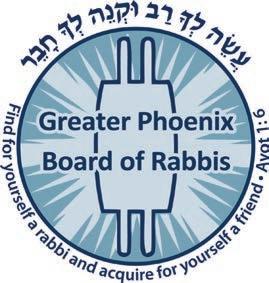
“There are great kosher wines, and we have lots of different choices,” said Lisa Davis-Berman, assistant manager of Total Wine & More at Desert Ridge Marketplace in Phoenix. “There are

Bus (480) 948-5554 • Cell (602) 228-0265
Tobyre4u@aol.com

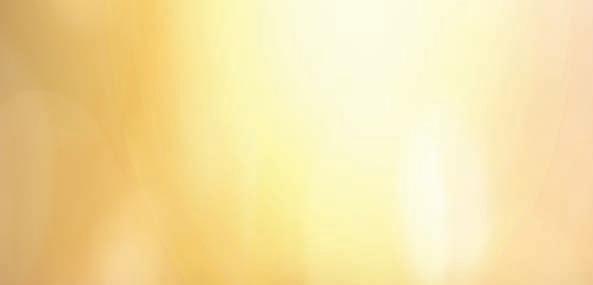
7077 E. Marilyn Rd., Bldg. 4, Ste 130 Scottsdale, AZ
the standards, Mogen David and Manischewitz, and then you have others like Baron Herzog and ones from Israel. Some of them are kosher for Passover, but not all of them.”
Davis-Berman said they have different price points to fit any budget. For example, a 750ml bottle of Mogen David Concord sells for $4.49, while the same size bottle of Baron Herzog Kosher Cabernet Sauvignon Reserve sells for $45.99.
Total Wine & More was founded and led by brothers David and Robert Trone. David Trone is also a politician serving as the U.S. Representative for Maryland’s 6th Congressional District. His wife, June, is Jewish and although he is not, Davis-Berman said that Trone insists that his stores carry a selection of kosher wines and spirits.
During Passover, Davis-Berman said people are often looking for Manischewitz wine to make their charoset. “I always can tell what they’re
buying it for,” she joked. “I tell them, ‘My last name’s Berman; I know why you’re here. Chag sameach.’”
In addition to a substantial selection of kosher wines, Total Wine & More at Desert Ridge also carries several kosher spirits including Hudson Whiskey NY’s “Do The Rye Thing,” Loch Haim single malt Scotch whisky from Scotland and Moses Vodka from Finland, which also comes in a date flavor.
Since she’s Jewish, Davis-Berman said her co-workers will sometimes ask her spirit-related questions about upcoming Jewish holidays so they can better serve their customers.

“One of the things that’s great about this company is that they are really good at teaching diversity,” she said. “With every holiday, whether it’s Jewish or not, there’s information about it on our main corkboard so we can educate everyone who works here.”


For more information, visit totalwine.com.
1) Kosher wine is made in precisely the same way as “regular” wine. The only difference is that there is rabbinical oversight during the process and the wine is handled by Sabbath-observant Jews.
2) Not all Israeli wines are kosher. Only about 30% of Israeli wine brands are certified kosher but these kosher wineries produce over 90% of the Israeli wine industry’s output.
3) In the 1980s, there were very few kosher wines. Buchsbaum said that Royal Wine only imported three kosher wines from Bordeaux, France, at that time.
f you’d like to change up your Passover greeting this year, you could try it in Navajo. That would be atis adeesdzá bééhániih — Passover in Navajo — as it appears in a calendar published annually showcasing Navajo and Hopi artists by the Flagstaff-based publishing house Salina Bookshelf, Inc.
I4) The number of producers of kosher wines has dramatically increased in the past 10 to 20 years. This is due to an increase in interest from consumers who are adding to their kosher wine portfolios and in some cases building actual kosher wine cellars in their homes, a rare sight just two decades ago.
5) While several well-known wineries in countries from all over the world including France, Spain, Italy and Argentina are crafting special runs of kosher wine, California is not. Except for Marciano Estate, which produces a kosher run of their Terra Gratia, a high-end Napa Valley Blend, all kosher California wine is made by fully kosher wineries such as Herzog Wine Cellars, Covenant and Hagafen.
“It’s is in the 2022 calendar and we have been including it for quite a few years now,” Mitchell said about Passover. “We have Christian holidays and Navajo Nation Treaty Day, which commemorates the Treaty of 1868 on June 1 every year.”
For the Navajo (Diné), the 1868 Treaty allowed a return to their ancestral homelands (Dinétah) and is an important symbol of Navajo sovereignty, according to the Smithsonian National Museum of the American Indian.
6) The reason many Passover dinners feature red wine is because there’s a rabbinic opinion that red wine is preferable since it’s the same variety that Jews used during their seders after they escaped Egypt.
7) Kosher wines can range in price from $5 a bottle to $500. The average price for a bottle of good kosher wine is $25.
“It’s an important holiday that commemorates when the U.S. government allowed the tribes to return to their homelands after having been displaced in ‘the Long Walk,’” Mitchell said.
8) The most popular Moscato in the United States happens to be kosher. Bartenura produces the largest-selling imported Italian Moscato in the U.S. The Moscato in the famous blue bottle sells over 5,000,000 bottles annually, only a fraction of which to the kosher market.
Salina Bookshelf, founded in 1994, is an independent publisher of multicultural materials which includes textbooks, children’s picture books, children’s chapter books, informational texts, reference books, audiobooks and language learning materials. They specialize in dual language books in Navajo/English and Hopi/ English and textbooks used to teach the Navajo language in schools.
Passover has been included in the calendar for several years, stated Tyler Mitchell, executive editor at Salina. However, he’s not exactly sure when it was initially added or who translated the word for the holiday into Navajo.

As far as he knows, Passover is the only Jewish holiday in their calendar.
9) Currently, there is a steady increase in total wine consumption and a great interest specifically in high-end Israeli wines, as well as the better French wines.

“When we do our calendar, we find a list of holidays on the internet, include some of them and give Navajo names to them,” he said.
10) Drinking wine can be a mitzvah. Kosher wine is prescribed for use in many Jewish rituals: at a brit milah, a pacifier dipped in wine is used to comfort the baby during circumcision; under the wedding chuppah, when the bride and groom officially become a couple; and the Kiddush that starts all Sabbath and holiday meals. While most occasions call for just one cup, on the holiday of Purim, wine (in abundance) is the beverage of choice for the festive meal, recalling wine’s significant role in the “banquets” described in the Megillah story. And on Passover, Jews are required to drink four cups of wine at the seder. JN
For more information, visit royalwine.com.
Navajo is the third most spoken language in Arizona, after English and Spanish. According to “Ethnologue: Languages of the World,” the Navajo language has 7,600 monolingual speakers and more than 170,000 fluent speakers worldwide. There are some slight regional variations in pronunciation and vocabulary among the language spoken in Arizona, New Mexico and Utah.
For the past several years, Albuquerque, N.M. resident Dr. Gordon Bronitsky, who received his Ph.D. in anthropology from the University of Arizona in 1977, has worked promoting indigenous artisans. He has extensively studied Native American history and is an expert on Native AmericanJewish relations, having worked on cultural diplomacy with the state department.
Bronitsky discovered the unique calendar and broke down the translation of atis

KO SHE R FO R PASS O VE R milk is available now in our 96 oz. Organic line, including Whole, Reduced Fat, Lowfat and Fat Free varieties.
KO SHE R milk is available now in our 96 oz. Or Whole, R and F
JACKIE HAJDENBERG | JTAFor millennia, Jews have eaten matzah. And for years, Jewish patrons of Trader Joe’s have been able to purchase matzah off the shelves of the tiki-themed grocery chain — which has gained its own quasi-religious following.
Now, for the first time ever, Trader Joe’s will be selling matzah under its own famous private label.

The question, even among the store’s diehard Jewish fans, is what makes Trader Joe’s-branded matzah different from all other matzah.
The grocery chain with more than 500 stores nationwide, and known for characteristically friendly, Hawaiian shirtclad employees and a limited selection and high turnover of products, has gained a cult-like following in its 56 years of operation. An Instagram fan account boasts nearly 2 million followers; the internet is abound with memes about falling in love with Trader Joe’s cashiers; and dozens of Facebook groups with thousands of members each exist to cater toward the specific dietary needs of loyal shoppers.
Those loyalists include no small number of Jews who keep kosher. The store stocks a number of Jewish, Israeli and Middle Eastern foods — from an “everything but the bagel” spice mix to spicy zhoug sauce to kosher-certified turkeys ahead of Thanksgiving, and frozen latkes. Trader Joe’s caused a small uproar in 2012 when it stopped stocking kosher pareve semisweet chocolate chips. After a campaign by Jewish customers, the chain brought the product back to its shelves in 2021. But whether that loyalty will extend
to the store’s matzah is unclear. Some shoppers said they were excited about the new offering, while others wondered whether it would be any different from the matzah Trader Joe’s has sold in previous years. Still others said that by putting its name on one of the most quintessential Jewish foods, Trader Joe’s “signals that Pesach products have gone mainstream,” in the words of Susan Robinson, a member of Kosher Trader Joe’s, a Facebook group with more than 63,000 members.
The decision also demonstrates that Trader Joe’s takes its kosher-observant customers seriously, said Rachel B. Gross, a professor at San Francisco State University who teaches a course on U.S. Jews and the history of food.
“My understanding is that they’ve never wanted to do everything,” Gross
said. “But they have had a really strong kosher game because that worked really well with the way they approached the niche markets in general.”
For years, Trader Joe’s sold matzah made by a brand called Holyland, and it’s unclear whether the chain’s new boxes hold the same old product. The company — which is secretive about who produces its private-label foods — told the Jewish Telegraphic Agency only that the new private label matzah is made by “one of the largest and oldest matzo-making bakeries in Israel.”
Whether the Holyland once sold by Trader Joe’s is made by the same company as Holyland Shmura Matzo — a circular handmade variety — is similarly unclear. But there are hints, beyond the name,
Just look for the symbol OUD-P between Find S KO SHE R milk in the dai
milk is available now in our FO R PASS O VE milk is available now in ganic line, including educed Fat, Lowfat Free varieties.
Just look for the symbol and best-by dates 4/20 and 4/24.
Just look for the symbol OUD-P and best-by dates between 4/20 and 4/24.
Find Shamrock Farms® KO SHE R FO R PASS O VE R milk in the dairy aisle.








hamrock Farms FO R PASS O VE milk in the dairy aisle.

WISHING YOU A peaceful, joyous AND meaningful Passover. evjcc.org
CONTINUED FROM PAGE 17
that they come from the same company, which is based in Israel. Both share the same distributor, and both include a logo on the front bearing the web address NaturallyBetterWithYouInMind.com, a site that boasts “high quality, all natural, kosher foods.”
A representative of the distributor of both Holyland products, a New Jersey company called Kayco, did not know whether the current Trader Joe’s product is the same as the Holyland matzah. The new Trader Joe’s matzah box says only that it is distributed and sold by Trader Joe’s, which is headquartered outside of Los Angeles.
That confusion has led to an ambivalent reaction among some members of Kosher Trader Joe’s. Multiple members of the group shared photos of the new boxes at their local stores, encouraging each other to buy the matzah in order to press the company to produce it again next year.
Some commented on the new box design, while others remarked on the price — $2.69 per box, a slight increase over the $2.49 Trader Joe’s charged for the Holyland boxes last year, according to an Instagram fan page. (Name-brand boxes of matzah at the same weight cost slightly more at other retailers, ranging from
about $3.22 for a 16 ounce box of Yehuda Matzos to $4.49 for Manischewitz’s version of the unleavened bread.)

“Trader Joe’s has sold Holyland Matzah for at least a decade, if not longer,” wrote one member. “I’m surprised that it has taken them this long to put it under the Trader Joe’s private label.”


Others were just happy to have access to matzah at all. Another member recalled that supply chain delays and restrictions related to COVID-19 led to shortages of Passover products, and that in Manhattan’s East Village, where he lives, “TJ – and the Holyland Matzo –became a Pesach saver. That’s what the commotion is all about.”
(Members of the group who adhere to strict kosher laws may not have tried the new matzah yet due to a tradition of not eating matzah between Purim and Passover, although a few customers remarked that it feels thinner than Holyland matzah.)




In addition to matzah, Trader Joe’s will sell Teva Glatt kosher-for-Passover Angus beef brisket and a few kosher-for-Passover wines including Sara Bee Moscato and Baron Herzog chardonnay and cabernet. The company will publish a complete list of its kosher-for-Passover offerings closer to the holiday, which begins the night of April 5.
Gross said the conversation over Trader Joe’s matzah fits in with the way
Americans celebrate Passover, which she said is intimately tied to brands. She cited the proliferation of well-known Passover products like the haggadah published by Maxwell House coffee, which was first printed more than 90 years ago, or Manischewitz’s many Passover foods. The way the holiday has been shaped by brands, she said, is “in some sense, a traditional American Jewish experience.”
“Jews have really learned over the last 110, 120 years how to trust brands, and trust brands around kashrut, especially around Passover,” Gross told JTA.



“We know that the people who keep kosher are such a small minority,” she added. “And we know that the number of people who look for heckshers are not primarily Jews, which makes me wonder how many non-Jews buy matzah, or [how many] they expect to buy matzah.”
But for at least one member of Kosher Trader Joe’s, brand loyalty was not enough to make the new matzahs stand out.
“Most articles written about this Matza as well as online comments make it out to be something earth-shattering and revolutionary, and fail to mention that Trader Joe’s has carried matza around this time, in every single store, for years and years under the Holyland Brand,” wrote Yoseph Goldstein. “Have folks easily forgotten this? Is it really the ‘coolness’ of the box?” JN

Olives. Tomatoes. Oranges. Artichokes. Dates. Cotton balls. And, now, sunflowers.
This list might seem like a setup for a logic puzzle or a grocery run. But it is, instead, a (non-exhaustive) list that I have seen of additions to the seder plate, items to highlight and include stories and histories that are not, at least explicitly, part of the Passover seder.

On its surface, it is a noble goal — why shouldn’t we consider the plight of Ukrainians in spring 2022 (sunflowers), or remember the American history of slavery (cotton ball)? Wouldn’t we want to honor the farm workers who put food on our tables (tomatoes), or intertwine the story of the Palestinians along with our own (olives)? In my own family, my mother insists on the orange on the seder plate, regardless of its apocryphal origin as feminist symbol.
But I won’t be adding anything to my plate. As a rabbi, teacher and mother, I’m Over
Here’s why I’m sticking to the basics on my Passover seder plate.
sticking with the traditional items.
My decision to eschew seder plate innovation stems from the thinking about inclusion that I do all the time in my work. Both in encountering ancient text and modern community, I am always asking: Who is not in the room? Whose voices are not being heard? I know that the language I use, that we use, matters; I think carefully about the stories I tell, the translations I use, and the questions I ask. When I preach, when I teach, my hope is always that anyone, regardless of how they identify, sees themselves in the text and in the message.
At the same time, I am always aware that by naming one story, or one identity, I might be excluding another.
One of the great tensions of Jewish life in the 21st century is between universalism — the central themes and ideas of Jewish wisdom that speak to all of the human experience — and particularism, the doctrines and injunctions meant to distinguish Jewish practice and ritual from that of the rest of the world. And of all of our stories, it is perhaps Passover that best embodies this tension.
It is a story embraced by Jews, by Black Americans, by Christians the world over. It is our story, to be sure. But it is also
a story for anyone, and everyone, who has ever known bondage, who has ever felt constricted, stuck in a narrow place.
It is a story for all who have sought the freedom to be their fullest selves, whether that freedom is physical, spiritual, or both.
Bechol dor vador, chayav adam lirot et atzmo k’ilu hu yatza mi-Mitzrayim: In every generation, we are obligated to see ourselves as if we, ourselves, had come out of Egypt.


Core to the seder, this statement is our directive — this is how we must experience and also teach the Passover story and its lessons. We experience it as our own story; it is not simply something that happened to our ancestors, or a story of myth or history. It is ours, regardless of where we come from, who we are now, or where we might be going or becoming.
The seder night is a night for telling stories, our own and the ones we think need to be told. But to my mind, we do not need more on our seder plate to make that happen. In fact, I worry that, in this case, more is less — in trying to include each particular story, we lose the universal truths. I hope that we sit around our seder tables and talk about the plight of today’s refugees, whether from Ukraine, Syria or Central America. I hope that we sit around our seder tables and talk about the bravery of each and
every person who tells their coming out story and lives their truth. I hope that we sit around our seder tables and talk about the Palestinian struggle for selfdetermination, the ongoing struggle for farmworker and immigrant justice here in the United States, the shameful history of American slavery and its lasting legacy of systemic racism, our own stories of immigration and exile and whatever other stories you and your families need to tell.
Over the course of the seder, we lift up the items on the seder plate and tell of their significance. What is this bitter herb, we ask? It is to remind us of the bitterness of slavery, the bitterness of being subject to a power we have not chosen, the bitterness of being despised for who we are. What is this shankbone, we ask? It is a reminder of the power that can redeem us, the helping hands that pull us out of our bondage, the strength of conviction that we honor. These are particular items, to be sure, but they are telling universal stories.
Why do we need additional items, when these symbols allow us to tell the stories we want to tell? I worry that the more specific stories we attempt to include, the more we are excluding. What happens to people who do not see their specific story represented on a seder plate that is groaning with symbols of so many other stories?
One of the core lessons of the Exodus is the impulse toward empathy. Over and over, the Torah returns to this narrative, reminding us to protect and love and be kind to the stranger, because we were strangers in the land of Egypt. The Torah is not specific; we do not name that we must be kind to the Ukrainian refugee, or the trans teenager, or the Palestinian farmer, or the African man who is enslaved. Because to name one, in this context, would be to exclude another. Our empathy, the Torah teaches, is meant to be boundless and inclusive. We are to welcome anyone — and everyone — who feels out of place, who feels unmoored, who has been oppressed or mistreated. To my mind, and in my understanding of the rites of Passover, each and every one of their stories is already represented on the seder plate and in the seder ritual. No additions needed. JN
Rabbi Sari Laufer is the director of congregational engagement at Stephen Wise Temple in Los Angeles.
The views and opinions expressed in this article are those of the author and do not necessarily reflect the views of JTA or its parent company, 70 Faces Media, the officers and boards of the Jewish Community Foundation, Center for Jewish Philanthropy, Jewish Federation of Greater Phoenix, Cleveland Jewish Publication Company or the staff of the Jewish News.





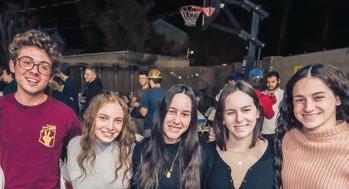



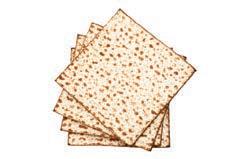













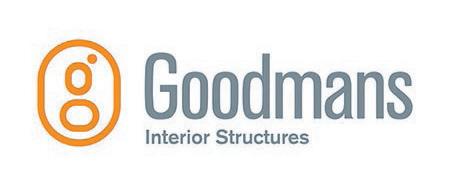







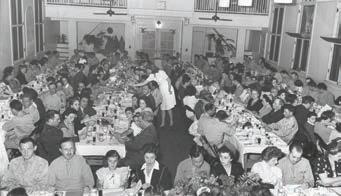

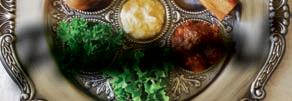












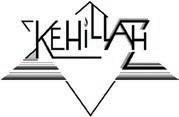





















The first Jewish overnight camps sprouted up amid the larger organized camping movement in America in the early 20th century but also as “a reaction to the antisemitism Jews across America faced,” according to the Museum of Jewish Heritage in New York. “Jewish overnight camps fostered community, allowed freedom to openly observe Jewish customs and religious rites and acted as a counter to the pressures of assimilation faced by many American Jews at the time.”
Today, the tradition of sending kids to Jewish overnight camp continues, although the cost can be prohibitive, especially with more than one child in the family attending.

According to the American Camp Association (ACA), the average cost in the United States for sleep-away camp was $448.53 per day in 2022 (although the average cost for Jewish overnight camp is $288 per day, or $1,440 per week, according to the Foundation for Jewish Camp).
The ACA has some recommendations for parents seeking financial help, starting with asking the camp directly what payment or assistance programs they offer. Many camps offer special discounts — for everything from early registration, fullseason, multiple enrollments from one family to late registration to fill an empty spot. For families who enroll early, many camps also offer a structured payment plan throughout the year, so camp costs are not incurred all at once. In addition, many camps offer “camperships” — partial or total scholarships and financial assistance and parents shouldn’t assume their income doesn’t qualify for these opportunities.
There are also agencies in the Greater Phoenix area that also offer financial assistance to families who want to send their children to summer camp.
The Center for Jewish Philanthropy of Greater Phoenix (CJP) provides limited, need-based scholarships for Jewish children living in Maricopa County to attend Jewish summer camps in North America. Eligible campers must be entering grades K-12 (as of fall 2023) and enrolled in a program hosted by a Jewish, nonprofit organization. Campership grants are made possible by the generosity of the Molly Blank Fund of the Jewish Community Foundation, endowment funds established at the Jewish Community Foundation by Jack Bromfield and by the families of Labe Eric Targovnik, Kenneth Maltenfort, Jean and Harold Grossman, Gloria and Sidney Kasper and by other generous donors to the CJP.
The first round of applications closed on March 6, but there is a second round and these applications must be received no later than April 15. Last year the CJP gave out $155,000 in scholarships to children attending 35 different camps across North America.
“We look at family income, special circumstances and take into account what the camp is doing to help, what the synagogue is doing to help and what the total unmet need is,” said Andrea Cohen, director of youth philanthropy and community engagement for CJP.
“We just want to help families get their kids to camp and we work collaboratively with camps to make that happen,” she said.
Cohen has spent more than three decades involved with camps and is also the resident director at Gindling Hilltop Camp, a Jewish sleep-away camp of Wilshire Boulevard Temple in Los Angeles, California.
Another option for families looking for help funding camp is Jewish Free Loan (JFL). JFL offers interest-free loans for day camp and sleep-away camp experiences, both in Arizona and out of state.
“We provide $5,000 a year, per family, up to four years, for a maximum of $20,000,” said Fredi Brown, services coordinator at Jewish Free Loan.
Cohen agreed that there is nothing quite like being Jewish at camp, “For our kids that live here in Arizona, who might be one of 10 Jewish kids in their school, being able to be at camp and be surrounded by other Jewish kids, where you don’t have to explain anything — they can just live joyful Judaism all the time. That, to me, is the greatest gift we can give to our kids.” JN
To apply for a Jewish camp scholarship from CJP, visit phoenixcjp.org/what-we-do/jewishcamp-scholarships-and-teen-israel-funding. For information about Jewish Free loan and its application materials, call 602-230-7983 or visit jewishfreeloan.org.
Jewish News is published by the Jewish Community Foundation of Greater Phoenix, a component of the Center for Jewish Philanthropy of Greater Phoenix.

Parents can apply for a camp loan on JFL’s website under the general loan application. It is not need-based, so anyone can apply and the money can be used for day or overnight camp.
Brown explained that there are three “hard and fast” rules for anyone borrowing from JFL: the applicant must be over 18 years old, they must be Jewish and they must live in the state of Arizona. They also require a guarantor, who must also fulfill these requirements. There is only one guarantor needed for the amount of $5,000, which the parent or guardian of the camper needs to apply for annually.
Se ion 1: June 26- July 13 [girls]
◆ MUSEUMS
Camp Nagaale West info@nageelawest.org
Se ion 2: July 17- August 3 [boys]
PROGRAMS ◆ ISRAEL PROGRAMS
801-613-1539 nageelawest.org
56TH STREET SCOTTSDALE AZ 85253 480-951-3398 CHANENADMIN@CBIAZ.ORG
Camp Chanen Congregation Beth Israel 10460 N. 56th St. Scottsdale, AZ 85253
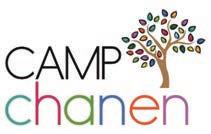
480-951-3398
Principal Chanen
Watersports, landmarks, national parks and fabulous cities feature in nearly 3 weeks of excitement through 5 states! Small camp, high staff- camper ratio, high energy Judaism. Ages 9-15.
Many of the camps listed use high school and college students as counselors and assistants. Contact camps directly for information. Some local synagogues also have day camps.
Preschool: Shaleen Hill Chanenadmin@cbiaz.org cbiaz.org
a place where children are seen, respected, and welcomed for who they are.
Since JFL is a lending service, not a banking institution, one of its main policies is that a person can only have one JFL loan open at a time. “So, if you take out a camp loan and then all of a sudden you need to borrow money to buy a car, you can only have one active loan at a time, per person,” said Brown.
480-951-3398
Camp Chanen offers a fun-filled summer of adventures for campers aged 6 weeks through entering 1st Grade.

Payment:
Brown shared that she went to summer camp as a kid and feels it’s important that children have the opportunity to go. “It just gives them a better root structure in their Judaism and in their Jewish community and it’s not school based. In other words, it’s fun. Camping is always fun.”
Weekly Camp Fees:
Chanen Preschool strives to ensure that every child here is rooted in Jewish values and traditions. Our teachers encourage cognitive, language, social/emotional, and fine/gross motor development.

Camp Gan Israel Day Camp Chabad of the East Valley 875 N. McClintock Drive Chandler, AZ 85226 480-855-4333 info@chabadcenter.com chabadcenter.com

A $100 nonrefundable Registration Fee is due upon registration and holds the camper’s spot. Snack fees are included in the weekly camp tuition. CBI Members registration fee is waived. A discount of 5% is available for those who pay for summer in full by May 16th. We offer a sibling discount of 3% on the lowest tuition.
All campers must enroll for a minimum of 2 weeks.
**Holiday weeks are discounted
Full Day is 7:30 am-3:30 pm
Director: Rabbi Tzvi Rimler Twelve months to 12 years. Eight weeks of Jewish ideas and values. Games, sports, music, gymnastics, arts and crafts, field trips, overnights, challah baking, lessons in Jewish culture.
Infants/Ones $325 (snack fee is waived, half days are not available)
Twos-Entering First Grade $375
Congregation Beth Israel 10460 N. 56th St. Scottsdale, AZ 85253
Aftercare Mon-Thur 3:30-5:30, Friday 3:30-4:30 $75 weekly
Half Day is Mon-Fri 7:30 am-12:30 pm
Twos-Entering First Grade $300
Director of education and youth engagement: Rachael VanLandingham Principal Chanen Preschool: Shaleen Hill Chanenadmin@cbiaz.org cbiaz.org
Camps at The J Valley of the Sun Jewish Community Center 12701 N. Scottsdale Road Scottsdale, AZ 85254
Camp Rimon East Valley JCC 908 N. Alma School Road Chandler, AZ 85224 evjcc.org/camp
East Valley JCC – Camp Rimon 908 N. Alma School Road Chandler, AZ 85224 480-897-0588; fax: 480-517-0124 info@evjcc.org evjcc.org

480-897-0588
Director: Pam Morris
Early childhood and youth coordinator: Stephania Alvarez Kindergarten to eighth grade. C.I.T. program for grades 9-10. Activities include swimming, sports, music, field trips, cooking, STEAM, rock show, arts and crafts, Israeli culture, mitzvah projects, late nights and more.
Grades K-8. May 30-July 28, 2023. Activities include swimming, field trips, games, sports, arts & crafts, cooking, Maccabia Week, late nights, Shabbat observances and more. This year's theme is "Around the World at the J."
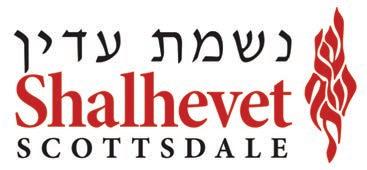

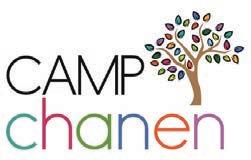 SHANNON LEVITT | STAFF WRITER
SHANNON LEVITT | STAFF WRITER
On most weekday mornings, Morah Lakie Blech makes breakfast for her family, gets her three children ready for school and heads out the door. When the weather is temperate, the kids grab their bikes, even the youngest, who is three and new to riding without training wheels — though Blech brings the stroller should it become necessary — and they walk to Phoenix Hebrew Academy (PHA).
Blech, an Orthodox Jew, lives close to her synagogue, Congregation Beth Joseph in Phoenix, so she can walk there on Shabbat and holidays. Conveniently, her shul shares space with PHA, where her children go to school and where she is the director of innovation.
After arriving, but before heading to her desk, she takes the kids to their classrooms where their teachers and friends welcome them and it’s clear they’re happy to be there.
“Sometimes, there are those crazy parenting mornings and someone spilled cereal on the floor, and we have to recenter before leaving, but then we’re going to school and I know that I’m dropping my kids off and going to work and I’m so happy I get to see this beauty every day,” she said.
Before taking the director role seven months ago, Blech was a PHA teacher and had been for six years. Like many on staff, she is in it for the long haul. She believes there is such low turnover due to the school’s focus on what’s best for the child, both in terms of education and “teaching them to be good, wholesome people and the next leaders of our community.”
An eighth-grade girl told Jewish News that her favorite thing about the school is that “everybody’s always connected and helping each other.”
There have been a few significant new additions to the school and modifications to the curriculum. The old adage, the more things change the more they stay the same, rings true for PHA — at least when it comes to its “PHAmily” atmosphere, as Blech calls it.
Rabbi Baruch Harris became head of school seven months ago and noticed right away the close-knit nature of the school.
“It’s the kids playing with each other, supporting each other and being there for each other. It’s just a beautiful family and
to have that feeling with uncompromising academics — both the Judaic and the general studies — is just perfect,” he told Jewish News.
There could be some big changes on the horizon.
PHA, the first Orthodox day school in Greater Phoenix, is composed of five non-descript buildings built more than 40 years ago. This year, the school has 180 students, close to its highest possible enrollment. If growth continues, the school may have to turn students away for the first time. That’s one big reason a plan for a new building is in the works.
Before the COVID-19 pandemic struck, the administration and board were considering expansion but priorities had to shift away for a couple of years to keep the students and staff safe.

“They just had to realign things and said, ‘First, let’s everyone be safe and then we can restart and redraw and rebuild,’” Blech said.
Still, the priority is education and ensuring that “we have continued excellence internally, and then focus on the external building,” she said.
A few internal developments are already underway.
Harris and Fred M. Graef, general studies principal, introduced some changes to the curriculum when they arrived at the school. In the weeks leading up to the first day of school last fall, emails were sent to parents about the Wonders’ series for reading, grammar and spelling; the Saxon math series; and the New Generation Science standards, their benefits and how they align with state and national educational standards.
“Our role is to educate the kids in a way where they can integrate into the world with their Jewish values and their Jewish learning to be functional members of the greater society,” Harris said.
When people ask him about his educational philosophy, he counters that they should spend time walking around the school, seeing his actions.
He invites anyone to walk into a classroom and see the kids writing algebraic equations; or into the science center where kids are learning to fly drones in an obstacle course and learning to design and program their own drones; or to

come on Tuesday when it’s “PI day” and the kids will eat pie and then learn the area of their pie based on pi; or any of a host of other things.
“We can empower the kids, teach them how to do things and protect them too. Our goal is to create students who are capable of making decisions in a world where they will have to mesh their Jewishness and their Americanness,” he said.
This is the first year in a while that the school has spent a significant amount of time and money researching, buying and implementing better curricula and stronger programs, said Alyssa Zupnick, the preschool director.

“That only benefits our student body,” she said.
She’s been gratified to see more parents getting involved as well, joining the parent-teacher organization and coming to student presentations.
“Anytime we can get parents in the door is a win for us,” she said.
The new leadership at the school is committed to being at the forefront of Orthodox Jewish education in Arizona and the nation.

When Zupnick joined the PHA administrative staff five years ago, after having
taught at PHA for seven years, there were 24 students in the preschool. That number has doubled and the administration has talked about adding classes, even adding younger students.
“We have goals and aspirations for the future that we didn’t really know that we could have until we saw that we were successful with what we already have,” Zupnick said.
Yona Weitzner, a preschool teacher in her sixth year, is excited about the growth and direction of the school.
“Getting bigger and stronger is beautiful and it will be wonderful to get more kids,” she said.
The teachers had professional development to learn how to incorporate the new math and language arts curriculum.
Kerry Lynn, a general studies teacher, is in her fourth year at the school and admitted that the first year could be tricky implementing new things and making the right adjustments.
“The first year is hard to gauge if we’re going in the right direction, but next year will give us a truer picture. The curriculum they’ve chosen is strong, and the kids are rising to it so far,” she said.
Lynn, who is not Jewish, came from the public school system. It was a difficult transition at first but she soon adjusted once the parents saw what she could do as an educator, she said.
“There was that balance — they had to
establish trust in me, and I had to learn how to teach around the culture — but I always liked the small community and the family connections that we have here. Now, I just can’t even think about leaving because I’m so connected with these kids and their families,” she said. Those teacher-student connections are powerful, as are the student-to-student relationships.
“You will often see an eighth grader go and hug their first-grade teacher and







then go to those young kids and help them with anything they need,” Blech said. “Kids are playing together in this amazing atmosphere and it’s beautiful.”
She is excited about the educational direction of the school and what the future will bring, but she’s also happy with where things stand now. “The kids are happy and it’s just a great place to be,” she said. JN
To learn more, visit phoenixhebrewacademy.com.
• Grades K-8
• Summer camp: Swimming, field trips, cooking, Rock Show, arts & crafts, music, Israeli culture, sports, STEAM






• School-break camps
• Kosher lunches


Doron Kornbluth, an Israeli international relationships expert, poses with students after his presentation to Chabad at Arizona State University.
Kids from the Valley of the Sun Jewish Community Center Early Childhood Center march through the Ina Levine Community Campus showing off their Purim costumes to cheering parents and bystanders. COURTESY OF JEWISH NEWS


Beth El Congregation collected mac-and-cheese boxes and used them for groggers before donating them to Vista Colina, a family housing shelter for women and their children.


Rabbi Dr. Shmuly Yanklowitz of Valley Beit Midrash led a United Against Hate rally with community faith leaders on March 6, to show solidarity with Jews in the face of rising antisemitism.

COURTESY OF ARIZONA JEWS FOR JUSTICE
The Center for Jewish Philanthropy of Greater Phoenix’s Shalom Phoenix welcomes newcomers and helps them get to know the local Jewish community. At the latest Welcome Wednesday on March 22, more than 50 people came to make connections and roughly a dozen local Jewish organizations were there to help them get started. Pictured from left: Myra Shindler, Lauren Duarte Barelli, Amy Hummell, Jen Rogers and Kathy Rood.
Brandeis National Committee Phoenix Chapter hosted its annual Book & Author event on March 13. Chapter presidents posed with the four authors who attended and moderator, Olivia Fierro. From left, co-president Leith Baletin, Larry Loftis, Dani Shapiro, Olivia Fierro, Wanda Morris, Rebecca Makkai and co-president Ellen Widoff.
COURTESY OF CHARLES ABRAMS/GALE GRADUS

The Ins and Outs of Artificial Intelligence: 5:30-7 p.m. Ina Levine Jewish Community Campus, 12701 N. Scottsdale Road, Scottsdale. Join the Center for Jewish Philanthropy’s Business & Professionals network for an interactive discussion with experts about the latest trends in artificial intelligence, like ChatGPT, and the ethics of using AI in your business and personal lives. Cost: $18 per person. For more information, contact Jennifer Starrett at jstarrett@phoenixcjp.org.
SATURDAY, APRIL 1
Not Your Mother’s Gala: 6-10 p.m. Temple Chai, 4645 E. Marilyn Road, Phoenix. Join Temple Chai for its annual fundraiser. Cost: $150 per adult. For more information, visit tcaz.shulcloud.com/ event/2023GalaRegistration.
TKA 2023 Gala: 6-10:30 p.m. Phoenix Art Museum, 1625 N. Central Ave., Phoenix. Join Temple Kol Ami for a night of dancing, dining and a silent auction. For more information, contact 480-951-9660.
SUNDAY, APRIL 2
PJ Library Lotsa Matzah and Locomotives: 11 a.m.-1 p.m. Adobe Mountain Desert Railroad Park, 23280 N. 43rd Ave., Glendale. Get ready for Passover with PJ Library and enjoy crafts, activities, train rides and family fun. Cost: Free. For more information, visit phoenixcjp.regfox.com/ lotsa-matzah-and-locomotion.
Film Screening: Jews of the Wild West: 2-4 p.m. Western Spirit: Scottsdale’s Museum of the West, 3830 N. Marshall Way, Scottsdale. Enjoy a community-wide showing of “Jews of the Wild West” in partnership with Center for Jewish Philanthropy. Supporting organizations include the Greater Phoenix Jewish Film Festival and Arizona Jewish Historical Society. For more information, visit scottsdalemuseumwest.org/project/ jews-of-the-wild-west-film.
MONDAY, APRIL 3
David de Jong talks about his book, “Nazi Billionaires: The Dark History of Germany’s Wealthiest Dynasties:” 5-7 p.m. Virtual. Join the Phoenix Holocaust Association for an online discussion featuring David de Jong’s investigation of how Germany’s wealthiest men helped the Nazis grab power and how the Nazis helped German tycoons make billions off the horrors of the Third Reich and World War II. Cost: Free. For more information, visit phxha.com.
WEDNESDAY, APRIL 5 & THURSDAY, APRIL 6

2023 Passover Community Seders: For a list of seders open to the community across Arizona, visit jewishphoenix.com/ read/2023-passover-community-seders/.
FRIDAY, APRIL 7
Fran Lebowitz: 8 p.m. Virginia G. Piper Theater at Scottsdale Center for the Performing Arts, 7380 E. Second St., Scottsdale. Join Fran Lebowitz for a night of comedic storytelling. Cost: $35-$65. For more information, visit scottsdaleperformingarts.org/events.
MONDAY, APRIL 10 & TUESDAY APRIL 11
Spring Break Youth Philanthropy
Bootcamp: 9 a.m.-3 p.m. Ina Levine Jewish Community Campus, 12701 N. Scottsdale Road, Scottsdale. Join the Center for Jewish Philanthropy of Greater Phoenix for a program designed for middle school students looking to engage as leaders and philanthropists. The program will focus on hands-on service, group decision making, leadership and Jewish values. Cost: $180. For more information, contact Andrea Cohen at acohen@phoenixcjp.org or 480-481-1784.
SUNDAY, APRIL 16
Yom Hashoah Commemoration: 3 p.m. Congregation Beth Israel, 10460 N. 56th St., Scottsdale. Join the Phoenix Holocaust Association for its annual event featuring two concurrent sessions followed by a commemoration program including a procession of survivors, candle lighting in memory of the 6 million, presenting the Shofar Zakhor Awards to recognize those who educate the community about the Holocaust and musical pieces organized by Cantor Seth Ettinger. Cost: Free; registration required. For more information, visit phxha.com.
MONDAY, APRIL 17
Yom Hashoah Commemoration: 6 p.m. East Valley Jewish Community Center, 908 N. Alma School Road, Chandler. Join the EVJCC for refreshments at 5:30 p.m., “Voices Silenced: Music from the Holocaust,” a lecture-recital featuring music by composers killed during the Holocaust, survivor testimony by Dirk Van Leenen and a candlelighting ceremony with representatives from the City of Chandler and local faith leaders. Cost: Free; registration required. For more information, visit evjcc.org/yomhashoah.
SUNDAY, APRIL 23
An Afternoon with Lan and Joy: 2 p.m. Gloria Christi Federated Church, 3535 E. Lincoln Dr., Paradise Valley. Join Beth Ami Temple for a concert featuring violinists Lan Qiu and Joy Pan. Cost: $36 per person. For more information, call 602-956-0805 or visit bethamitemple.org.
SUNDAYS B.A.G.E.L.S: 9-11 a.m; last Sunday of the month. Valley of the Sun Jewish Community Center, 12701 N. Scottsdale Road, Scottsdale. Grab a bagel and a cup of coffee at Bagels And Gabbing Every Last Sunday and enjoy some time with your friends and make new ones. You must register to attend. Bagels and coffee will be provided. Cost: Free for members, $5 for guests. For more information and to register, visit vosjcc.org.
WEDNESDAYS
Mahjong: 1-3:30 p.m. East Valley Jewish Community Center, 908 N. Alma School Road, Chandler. Come play Mahjong each week. For all levels. Free; registration required at evjcc.org/mahjong.
THURSDAYS
Storytime at Modern Milk: 9:30 a.m. Modern Milk, 13802 N. Scottsdale Road, #163, Scottsdale. Storytime for babies, toddlers and preschoolers. Integrates children’s books and songs while giving parents new ideas for play. Cost: $5. For more information and to register, visit modernmilk.com/after-baby.
FRIDAYS
Shabbat in the Park: 10-11 a.m. Cactus Park, 7202 E. Cactus Road, Scottsdale. Join the Bureau of Jewish Education of Greater Phoenix monthly for music, parachute play, crafts and a family Shabbat experience. For more information, visit bjephoenix.org.
Welcome Shabbat: 11-11:30 a.m. Online. Celebrate Shabbat with the JFCS Virtual Center for Senior Enrichment. Each week a different guest host will lead the program with song and celebration. Cost: Free. For more information, visit jfcsaz.org/cse.
Shabbat at Beth El: 11-11:45 a.m. Beth El Phoenix, 1118 W. Glendale. Ave., Phoenix. Celebrate Shabbat with songs, blessings and teachings with Rabbi Stein Kokin the first Friday of every month. Special guests will be welcoming Shabbat during the remainder of the month. For more information or to join, visit bethelphoenix.com.
Erev Shabbat Service: 5:30 p.m. Online. Rabbi Alicia Magal will lead a service livestreamed for members of the Jewish Community of Sedona and the Verde Valley. Cost: Free. For more information and to obtain the Zoom link, visit jcsvv.org/contact.
Shabbat Services: 5:30 p.m. nosh, 6:15 p.m. service; morning varying dates and times. Temple Chai, 4645 E. Marilyn Road, Phoenix. For more information, contact Sheana Abrams at (602) 971-1234 or sabrams@ templechai.com.
Pre-Shabbat Kiddush Club: 6 p.m. Online. Say Kiddush with Rabbi Mendy Levertov. Cost: Free. Tune in here: ourjewishcenter. com/virtual. For more information, visit chabadaz.com.
Shabbat Services: 6 p.m; 9:30 a.m. Congregation Or Tzion, 16415 N. 90th St., Scottsdale. Services are also live
streamed at otaz.org/livestream. For more information about services, events and membership, visit congregationortzion.org or call 480-342-8858.
Shabbat Services: 6:15 p.m; 10 a.m. Congregation Beth Israel, 10460 N. 56th St., Scottsdale. Services held in the Goldsmith Sanctuary. Participants must pre-register by Thursday at 5 p.m. Priority will be given to members first and then guests. If there are more requests than available seats a lottery system will be used. For more information or to make a reservation, visit cbiaz.org/ shabbat-services.
Kabbalat Shabbat and/or Shabbat morning service: 6:30 p.m.; 10 a.m.; dates vary. Congregation Kehillah, 5858 E. Dynamite Blvd., Cave Creek. Join Rabbi Bonnie Sharfman and cantorial soloists Erica Erman and Scott Leader either in person or via Zoom. For safety reasons, please register ahead of time. For dates, visit congregationkehillah.org/event/. Register by emailing info@congregationkehillah.org.
Third Friday Shabbat: 7-9 p.m. Group meets at a North Scottsdale location. The Desert Foothills Jewish Community Association hosts a Shabbat service followed by a program. Contact Andrea at 480-664-8847 for more information.
Shabbat Services with Sun Lakes: 7 p.m. Sun Lakes Chapel, 9240 E. Sun Lakes Blvd. North, Sun Lakes. Sun Lakes Jewish Congregation conducts services on the second Friday of the month. For more information, contact 480-612-4413.
Shabbat Services with Beth Ami Temple: 7:30 p.m. Gloria Christi Federated Church, 3535 E. Lincoln Dr., Paradise Valley. Rabbi Alison Lawton and Cantorial Soloist Michael Robbins lead Shabbat services twice a month. Beth Ami welcomes people who are not affiliated and looking for a spiritual connection. For more information, visit bethamitemple.org.
MONDAYS
Fitness Xpress Series with Zoe: 11-11:30 a.m. Online. Presented by JFCS Center for Senior Enrichment. Workout features weight and band exercises as well as yoga poses. Exercises will be demonstrated standing, but can also be done sitting in a chair. Cost: Free. For more information, visit jfcsaz.org/cse.
Sip & Schmooze: 11 a.m. milk + honey, 12701 N. Scottsdale Road, Scottsdale. Sip on kosher coffee or tea, enjoy a pastry and
schmooze every second Monday of the month. RSVP appreciated to chani@sosaz. org or 602-492-7670. For more information, visit sosaz.org.
Featured Presentation: 12:30 p.m. Online. Join Smile on Seniors Mondays and Wednesdays to learn from a variety of presenters about topical issues, like Q&As with medical professionals, entertainers and lectures. Cost: Free. For more information, visit sosaz.org/virtual or email Rabbi Levi Levertov at levi@sosaz.org.
TUESDAYS
Movie Discussion Group: 11 a.m. Online. Join Smile on Seniors on the third Tuesday of every month hosted by Issy Lifshitz. Cost: Free. For full details and the movie of the month visit sosaz.org/virtual or email Rabbi Levi Levertov at levi@sosaz.org.
WEDNESDAYS
Fitness Fun with Zoe: 10-10:45 a.m. Online. Presented by JFCS Center for Senior Enrichment. Workout features light chair exercises with optional weights. Cost: Free. For more information, visit jfcsaz.org/cse.
THURSDAYS
Memory Cafe: 10-11 a.m. first Thursday; 1-2 p.m. third Thursday. Online. Presented by Jewish Family & Children’s Service. Program for those with changes in their thinking or memory, mild cognitive impairment due to Alzheimer’s disease or a related disorder, along with their care partners. For more information, visit jfcsaz.org/our-services/ older-adult-services/memory-cafe/.
For sale: one plot in a semi-private estate in the original Jacob Section of the cemetery (Jewish only allowed).

Has been upgraded to companion (burial for 2) space. Includes granite bench on adjacent space with name engraved. jarpell@yahoo.com
FRIDAYS Welcome Shabbat: 11-11:30 a.m. Online. Celebrate Shabbat with the JFCS Virtual Center for Senior Enrichment. Each week a different guest host will lead the program with song and celebration. Cost: Free. For more information, visit jfcsaz.org/cse.
Sit or Stand Ballet Class: 12-12:45 p.m. Online. Presented by JFCS Center for Senior Enrichment. Jennifer Cafarella Betts and Friends from Ballet Theatre of Phoenix teach this class. Grab a chair or you can stand next to a chair or counter. Cost: Free. For more information, visit jfcsaz.org/cse. JN
Gladys Levitt of Phoenix died on March 18, 2023. She was 97.
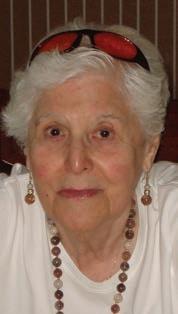

Gladys was born in Brooklyn, New York on January 24, 1926, to Simon and Dora Lubell. Gladys was married to Norton (Sol) Levitt on October 9, 1948 and celebrated their 65th wedding anniversary, four months before Sol died. They moved to Phoenix in 1960 and were members of Beth El Congregation for over 50 years.
Although Gladys was an RN, when she moved to Phoenix she worked in the Alhambra School District, both an aide on the bus for special needs children and a cook in the cafeteria. Gladys was active with JFCS Senior Program at both Beth El and then Chris Ridge. She was active with the Women’s Auxiliary of the Jewish War Veterans.
Elaine T Hammerschlag of Paradise Valley passed peacefully on March 19, 2023, surrounded by her children.
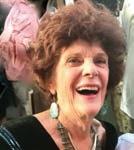
Elaine was born in New York City and lived a long, full, 85 years, raising and nurturing an extended “collective of clowns” with her husband of 61 years, Dr. Carl Hammerschlag who preceded her in death on 1-21-22.
Elaine was known for her great sense of style, outrageous jewelry, grace, sharp wit and profound sense of social justice.
She is survived by her three daughters Lisa, Amy and Tara, their spouses and four grandchildren. A life’s celebration will be held in honor of Elaine later this year.
Donations can be made in her name to the Kyah Rayne foundation, KyahRayneFoundation.org.
Gladys is survived by her daughters Tina (Irwin) Sheinbein and Jody Levitt both of Phoenix; her son, Jerry (Sylvia) Levitt from Surprise; six grandchildren, ten great-grandchildren and many nieces and nephews.
Services were held at Beth El Cemetery on Monday, March 20, 2023, officiated by Rabbi Yisroel Isaacs and arranged by Sinai Mortuary.
Donations in her memory can be made to the Levitt-Sheinbein Loan Fund at Jewish Free Loan, 12701 N. Scottsdale Road, Suite 206, Scottsdale, AZ 85254 or Hospice of the Valley, 1510 E. Flower St., Phoenix, AZ 85014.
SaraRuth K. Rossow passed away peacefully on March 24, 2023, at the age of 82. She was the oldest child of Alice and David Kornetsky. SaraRuth grew up in Holyoke, Massachusetts, surrounded by and part of a large and loving community. She graduated from American International College with a teaching degree. She later earned her master’s degree in education and went on to educate educators.
SaraRuth was passionate about community, social justice and Israel — and Zionism in particular. A consummate social butterfly, SaraRuth was never far from a telephone. She was devoted to her community and served on several boards throughout her adult life. No matter where she lived, SaraRuth found instant community and was a friend and neighbor who could always be counted on. She made friends easily and it was not a rarity that by the end of dinner at a restaurant she and the waitstaff would be on a first name basis. Ditto for the bank, supermarket, pharmacy and just about anywhere else she went. Humor was her hallmark and she was quick to smile or crack a joke. She was proficient in the art of batting her eyelashes and making silly sounds.
Howard Charles Trau of Phoenix, born January 27, 1929, passed peacefully in his sleep on March 21, 2023. He was 94.
Howard is survived by his dear wife, Jean, with whom he has spent the last 70 years lovingly beside and of whom he admired most in this world; as well as their three children Howard Jr. (Nancy), Curt (Tammy) and Jacki (Rick) Berger; 13 grandchildren and 16 great-grandchildren.
All remember him for his bright and goofy smile, kind heart, quick wit and insatiable sweet tooth. Howard spread his appreciation for life until the very end, and the stories he shared from his long and full history — often over the pages of his everpresent crossword puzzles — echo in the hearts and minds of those who knew him. His memory reminds us to value the simple things, like a family dinner or an evening spent bowling. Howard proved there are few things in this world, or in this life, a slice of chocolate cake and a cold glass of milk can’t fix.
Graveside services were held 11:30 a.m. on March 23, 2023, at Mt. Sinai Cemetery.
Philanthropy was a cornerstone of her life, and mahjong was her sport of choice. Make no mistake that she was a competitor to be reckoned with. SaraRuth was resilient and tenacious. She knew what she wanted and went after it with zeal. Nothing could keep her down. She found a second chance at love with her second husband and dear friend, Robert Rossow, who preceded her in death. Together, the two spent their retirement years in Sun Lakes, where they built upon a lifetime of volunteerism and socializing.
SaraRuth leaves behind her two daughters Miche Bacher (Noah) and Stacey Simons (Holly Cooper); and grandsons Jordan and Elijah. She is also survived by her brother, Jason Kornetsky (Carrie) and nephew, Ethan.
Donations can be made to the SaraRuth and Bob Rossow Women and Children in Crisis Loan Fund at Jewish Free Loan (jewishfreeloan.org) or the Boulder Jewish Community Center (boulderjcc.org).


















